Guide to Incentives



 Volkswagen Group of America, Fairfax County
Virginia International Gateway, Portsmouth
GEICO, Stafford County
Micron, Manassas
Volkswagen Group of America, Fairfax County
Virginia International Gateway, Portsmouth
GEICO, Stafford County
Micron, Manassas
2023
Top State for Business
The Commonwealth’s advantageous business climate — combined with assets such as a highly productive workforce, a strategic location, and an excellent quality of life — makes Virginia the best place to do business.

Introduction 2 Discretionary Incentives 5 Commonwealth’s Development Opportunity Fund 5 Major Eligible Employer Grant 6 Virginia Investment Performance Grant 6 Port of Virginia Economic and Infrastructure Development Grant 7 Virginia Economic Development Incentive Grant 7 Governor’s Agriculture and Forestry Industries Development Fund 9 Virginia Offshore Wind Supplier Development Grant 10 Regional and Local Assistance 11 Tobacco Region Opportunity Fund 11 Virginia Enterprise Zone Program 15 Foreign Trade Zones 15 Infrastructure Assistance 17 Rail Industrial Access Program 17 Transportation Partnership Opportunity Fund 17 Economic Development Access Program 17 Tax Incentives 19 Corporate Income Tax Credits 19 Property Tax Incentives 21 Agricultural Materials and Equipment Sales & Use Tax Exemption 22 Commercial and Industrial Sales & Use Tax Exemptions 22 Data Center Retail Sales & Use Tax 22 Exemption Recruitment and Training 28 Incentives Virginia Talent Accelerator Program 28 Virginia Jobs Investment Program 28 Virginia Registered Apprenticeship Program 31 New Economy Workforce Credential Grant Program (FastForward) 31 G3 Program 31 Management and Technical 31 Support The Virginia Innovation Partnership Corporation 31 Telework Incentives 32 International Trade 33 Financial Assistance 36 Virginia Small Business Financing Authority 36 Community Development Block Grants 36 In support of this pro-business environment, the Commonwealth offers a range of incentives and services to encourage business growth and reduce the costs of opening or expanding a business facility. Incentives include: discretionary cash grants, infrastructure development grants, tax credits and exemptions, customized training, technical support programs, and financing assistance. This guide focuses on state incentive programs and is meant to be a high-level overview. Local governments may offer additional business incentives to further reduce the costs of locating or expanding a business in Virginia. For full information, please visit VEDP.org/incentives Table of Contents
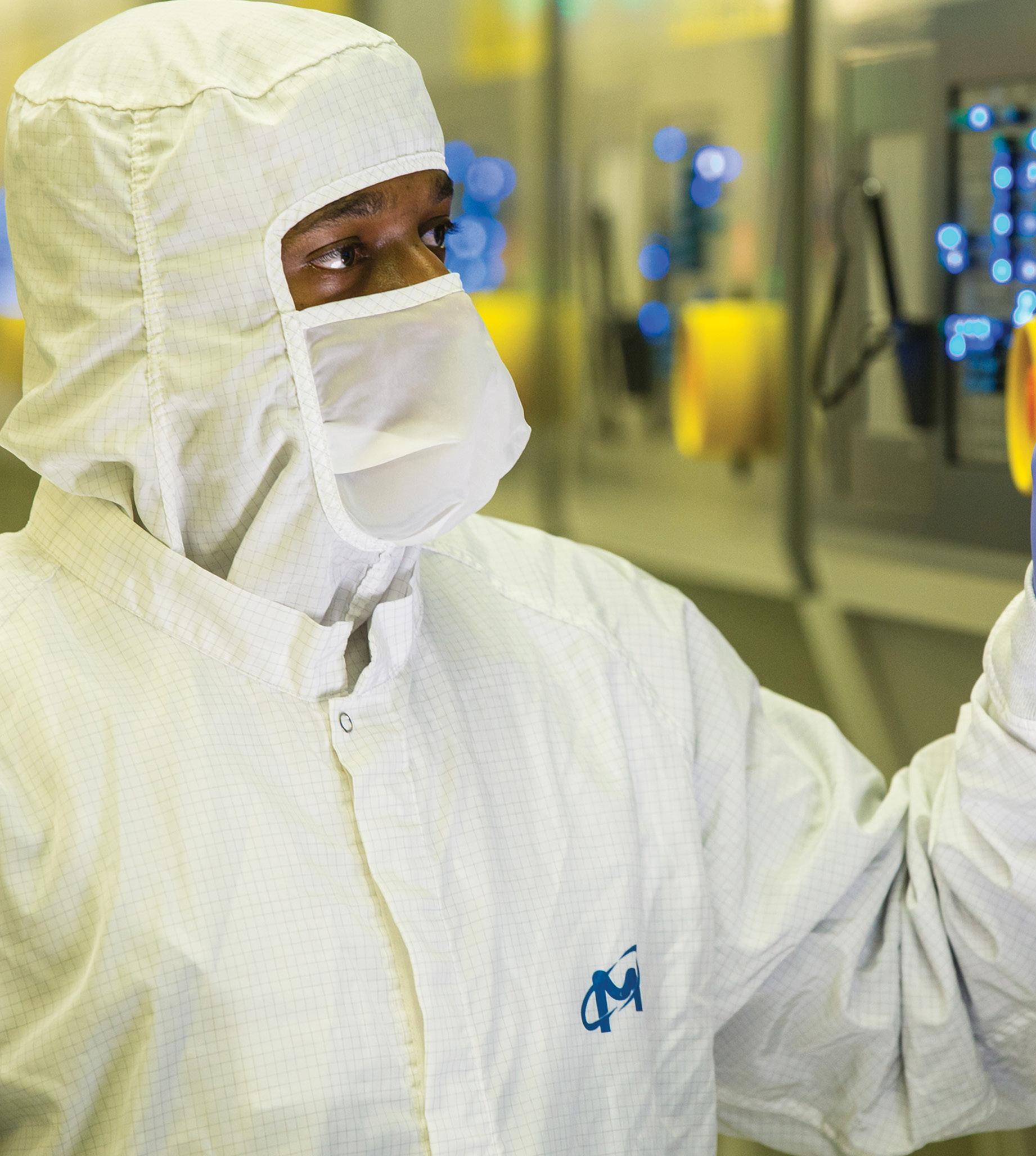
Top State Business Climate
Attractive, Stable, and Predictable Operating Environment


Virginia’s long history of sound economic policy and prudent financial management has earned the Commonwealth an AAA credit rating since 1938 — longer than any other state in the country.
Fiscal consistency has helped maintain a stable tax environment for companies and residents alike, with a corporate income tax rate that has remained unchanged at 6.0% since 1972, compared to the higher national average of 6.5%. This commitment to stability has translated into financial predictability for the companies that choose to operate in Virginia.
2022
S E LECTION MAGAZINE 2022
Micron, Manassas
NESTLÉ USA SELECTS VIRGINIA FOR NEW U.S. HEADQUARTERS

Virginia’s Accessibility to both the United States and the World
When Nestlé USA, a subsidiary of Nestlé S.A., began searching for the site of its new U.S. corporate headquarters, the world’s leading nutrition, health, and wellness company’s decision was ultimately driven by location. After an arduous selection process that spanned 20 cities, in February 2017, Nestlé USA announced it would invest $39.8 million to establish its U.S. headquarters in Arlington County, Virginia, creating 748 new jobs.
A move from its Glendale, Calif., office to the Eastern Seaboard would bring the household brand closer to its world headquarters in Vevey, Switzerland, and to its consumer base — 80% of the company’s products are sold east of the Mississippi River. As a company dedicated to building a healthier future for consumers, Nestlé USA’s strategic headquarters location will facilitate important conversations about using the best ingredients for U.S. food and beverage products.
Virginia’s Quality of Life Attracts and Retains World-Class Talent
Northern Virginia’s robust and diverse workforce was also a critical factor in the company’s decision. Arlington County is consistently recognized as one of the most educated areas in the nation, with over 70% of its residents equipped with a bachelor’s degree. Arlington’s millennial population is also one of the country’s fastest-growing, and new graduates from the Commonwealth’s acclaimed colleges and universities flock to the Northern Virginia region annually, ensuring a sustainable pipeline of talent. Arlington also offers a quality of life and assets strong enough to attract team members from California.
Virginia’s Competitive Business Climate
In addition to providing the right setting for Nestlé USA to thrive, the Commonwealth delivers sustainable, best-in-class cost affordability, with stable operating costs, and a 6% corporate income tax — one of the lowest in the nation — which hasn’t increased since 1972.
Nestlé USA’s decision to locate its U.S. corporate headquarters in the Commonwealth is the strongest testament to Virginia’s competitiveness in the global arena. As we work to diversify our economy and reduce our reliance on federal dollars, Nestlé USA represents the forward momentum of Virginia’s economy.
Nestlé USA was awarded a grant from the Commonwealth’s Development Opportunity Fund (COF) and the Virginia Economic Development Incentive Grant (VEDIG), and received funding from the Virginia Jobs Investment Program (VJIP). Arlington County offered performance grants and infrastructure updates, as well as relocation assistance for Nestlé USA employees from California.
CASE STUDY
3
When we thought about relocating our headquarters, it was really about finding the right location that gave us access to the right talent and the right kind of infrastructure we needed to succeed for the next 100 years and that turned out to be Virginia. What we found in Northern Virginia is the talent we need to win, and it’s exceeded our expectations.

Nestlé USA, Arlington County
STEVE PRESLEY CEO, Zone North America, Nestlé
Discretionary Incentives
Commonwealth’s Development Opportunity Fund
The Commonwealth’s Development Opportunity Fund (COF) is designed as a “deal closing” fund used at the Governor’s discretion to secure a company location or expansion in Virginia.
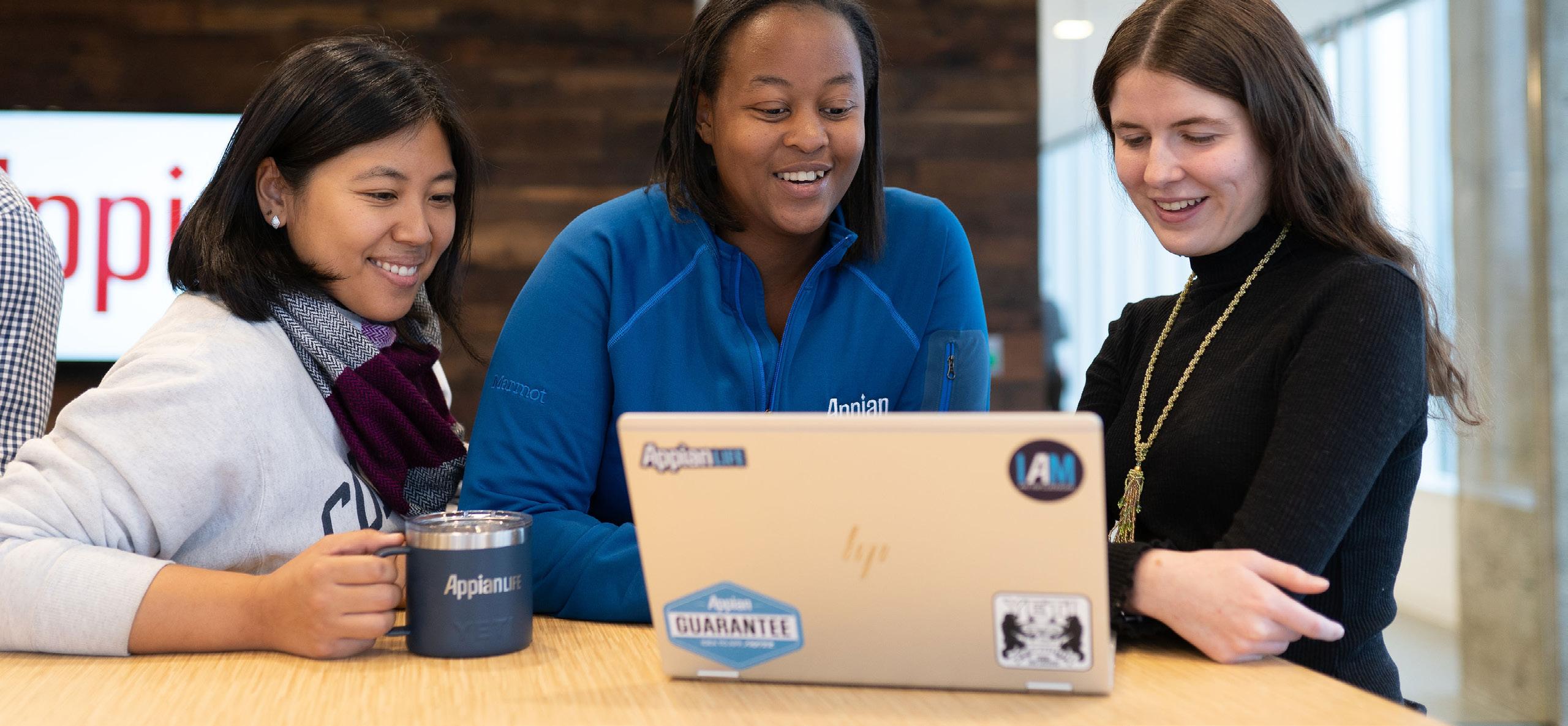
Administered by the Virginia Economic Development Partnership (VEDP), the COF serves as a final resource in the face of serious competition from other states or countries. The COF is a negotiated amount determined by the Secretary of Commerce and Trade, based on the recommendation of VEDP, and subject to the approval of the Governor. A COF is awarded to the Virginia locality (county, city, town, or applicable political subdivision) for the benefit of the company, with the expectation that the grant will result in a favorable decision for the Commonwealth
Grants are made at a locality’s request for a project under the following conditions:
■ $5 million capital investment and 50 new jobs at the prevailing average wage, or $100 million capital investment and 25 new jobs at the prevailing average wage
― Thresholds reduced to $2.5 million capital investment and 25 new jobs at 85% of the prevailing average wage in Single-Distressed Communities
Thresholds reduced to $1.5 million capital investment and 15 new jobs at 85% of the prevailing average wage in Double-Distressed Communities
■ The locality participates with a matching dollar-for-dollar (cash or in-kind) financial commitment
■ Review of financial documents and/or other information from company
■ Public announcement of the project is coordinated by VEDP and the Governor’s Office
■ A performance agreement is executed between the locality and the company outlining promised job creation, capital investment, and wages
■ Annual updates from the company reporting the status of the capital investment and job creation outlined in the performance agreement
Appian, Fairfax County
Major Eligible Employer Grant
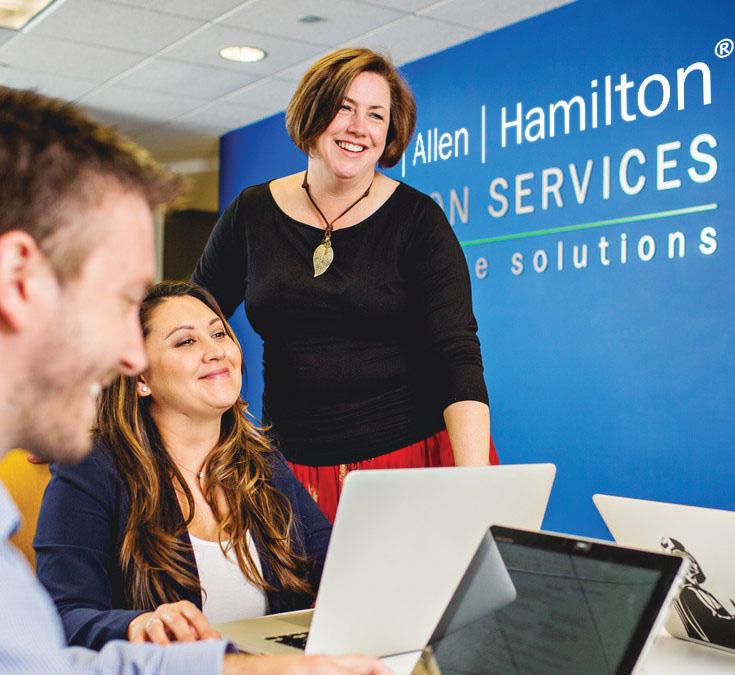
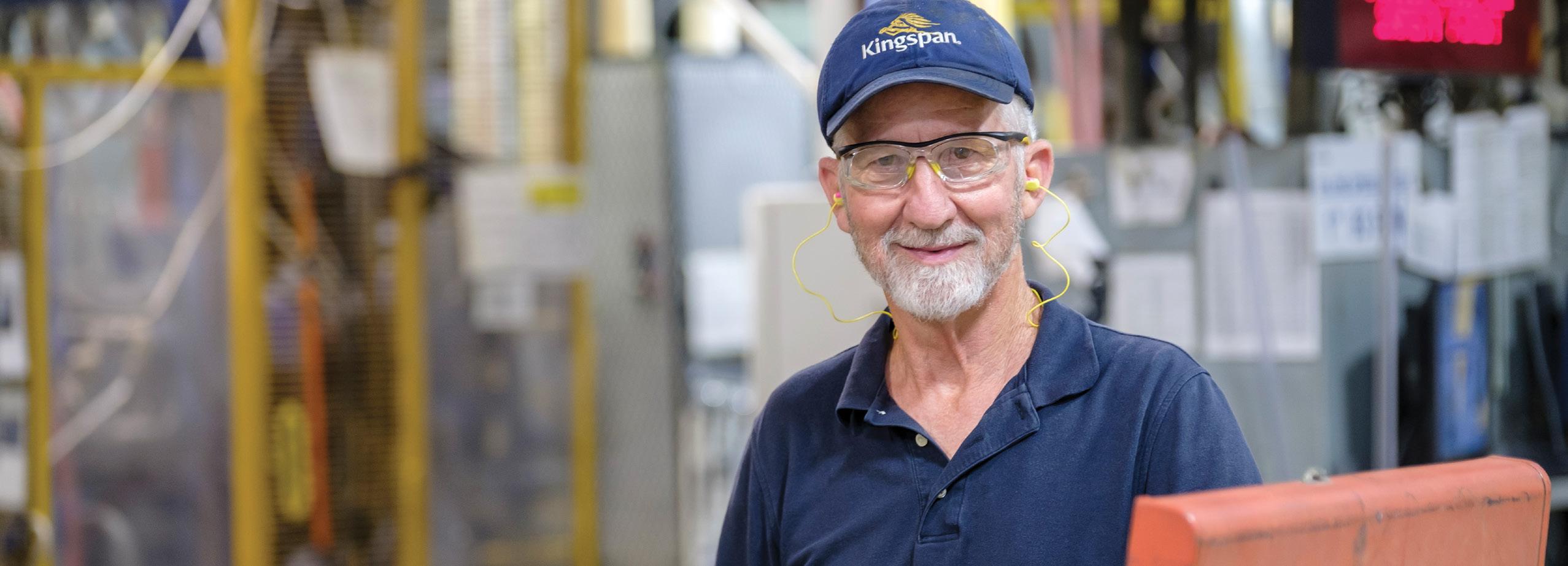
The Major Eligible Employer Grant Program (MEE) is a discretionary performance incentive designed to encourage significant capital investment and job creation, by Virginia manufacturers and other basic employers, to grow in Virginia rather than another state or country. The program targets major employers that make a capital investment of at least $100 million and create at least 1,000 new jobs (a minimum of 400 jobs, if the average pay is at least twice the locality’s prevailing average wage).
Virginia Investment Performance Grant
The Virginia Investment Performance Grant (VIP) is a discretionary performance incentive designed to encourage continued capital investment by Virginia companies, resulting in added capacity, modernization, increased productivity, or the creation, development, and utilization of advanced technology. The program targets manufacturers or research and development services supporting manufacturing that have operated in Virginia for at least three years and are making a minimum capital investment of $25 million while maintaining stable employment levels. There must be an active and realistic competition between Virginia and another state or country for attracting the project, and matching local financial participation is expected.
Kingspan Insulation, Frederick County
Booz Allen Hamilton, Fairfax County
(Left) Appian, headquartered in Fairfax County and a recipient of the Commonwealth’s Development Opportunity Fund (COF), provides a low-code automation platform for some of the world’s largest organizations. (Top) Booz Allen Hamilton employs thousands of Virginians and received the Major Eligible Employer Grant Program (MEE), among other incentives. (Middle) A leading manufacturer in energy efficiency and moisture management products, Kingspan received support from the Virginia Investment Performance Grant (VIP).
6
Port of Virginia Economic and Infrastructure Development Grant
The Port of Virginia Economic and Infrastructure Development Grant (POV Grant), administered by the Virginia Port Authority, is designed to incentivize companies to locate new maritime-related employment centers or expand existing centers to encourage growth of The Port of Virginia.
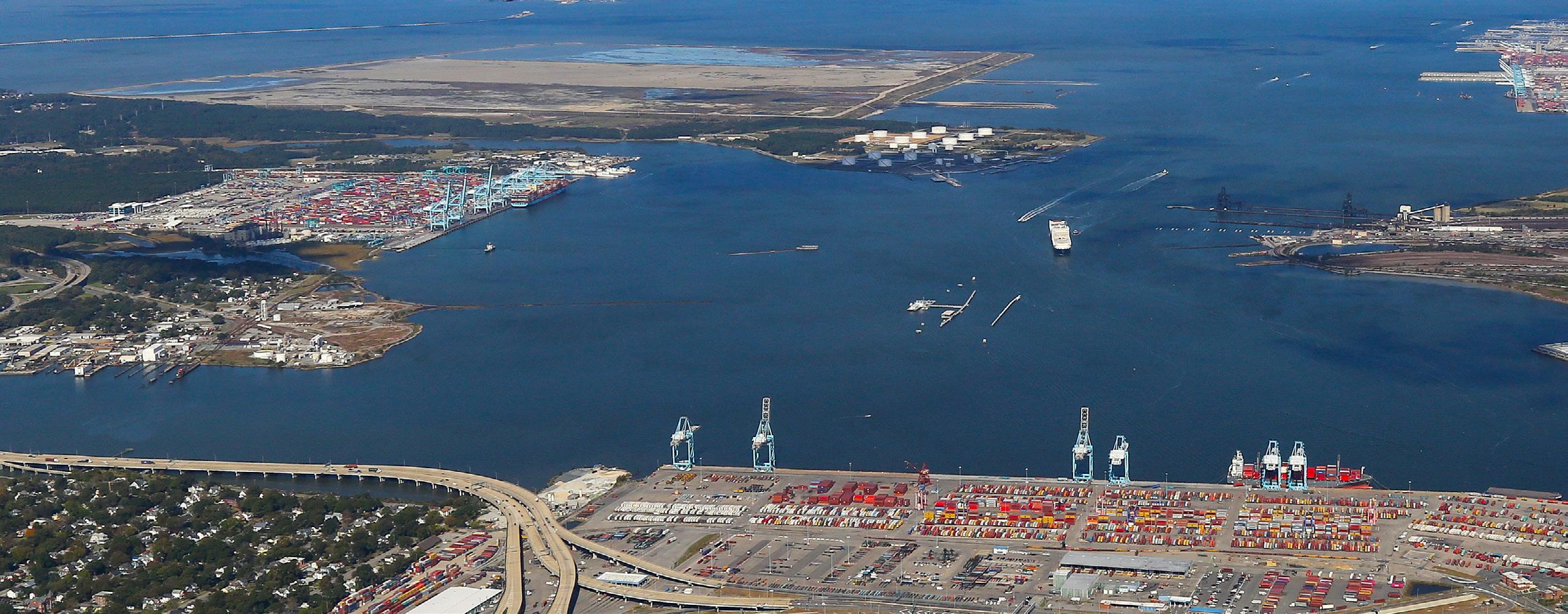
A business entity that meets all four criteria listed below may be eligible for a cash grant from the Port of Virginia Economic and Infrastructure Development Grant:
■ Locates or expands a facility within the Commonwealth
■ Creates at least 25 new, permanent full-time positions at a facility within Virginia from commencement of the project through the first full year of operation or during the year when the expansion occurs
■ Is involved in maritime commerce, or exports or imports manufactured goods through The Port of Virginia
■ Is engaged in one or more of the following: distribution, freight forwarding, freight handling, goods processing, manufacturing, warehousing, crossdocking, transloading, or wholesaling of goods exported and imported through The Port of Virginia; ship building and ship repair; dredging; marine construction; or offshore energy exploration and extraction
Virginia Economic Development Incentive Grant
The Virginia Economic Development Incentive Grant Program (VEDIG) is a discretionary performance incentive designed to assist and encourage companies to invest and create new employment opportunities by locating significant headquarters, administrative, or service sector operations in Virginia. Selected companies must meet the following eligibility requirements.
A company locating in a Metropolitan Statistical Area (MSA) with a population of 300,000 or more in the most recent decennial census must:
■ Create 400 new full-time jobs with average salaries at least 1.5 times the local prevailing average wage; or create 300 new full-time jobs with average salaries at least twice the local prevailing average wage
■ Make a capital investment of at least $5 million or $6,500 per job, whichever is greater
A company locating elsewhere in Virginia must:
■ Create 200 new full-time jobs with average salaries at least 1.5 times the local prevailing average wage
■ Make a capital investment of at least $6,500 per job
7
The Port of Virginia, Norfolk
Recipients of the Commonwealth’s Development Opportunity Fund (COF) and Virginia Economic Development Incentives Grant Program (VEDIG), Lidl US has created 725 jobs for Virginia residents. The Company received additional funding and services to support employee training activities through the Virginia Jobs Investment Program (VJIP).
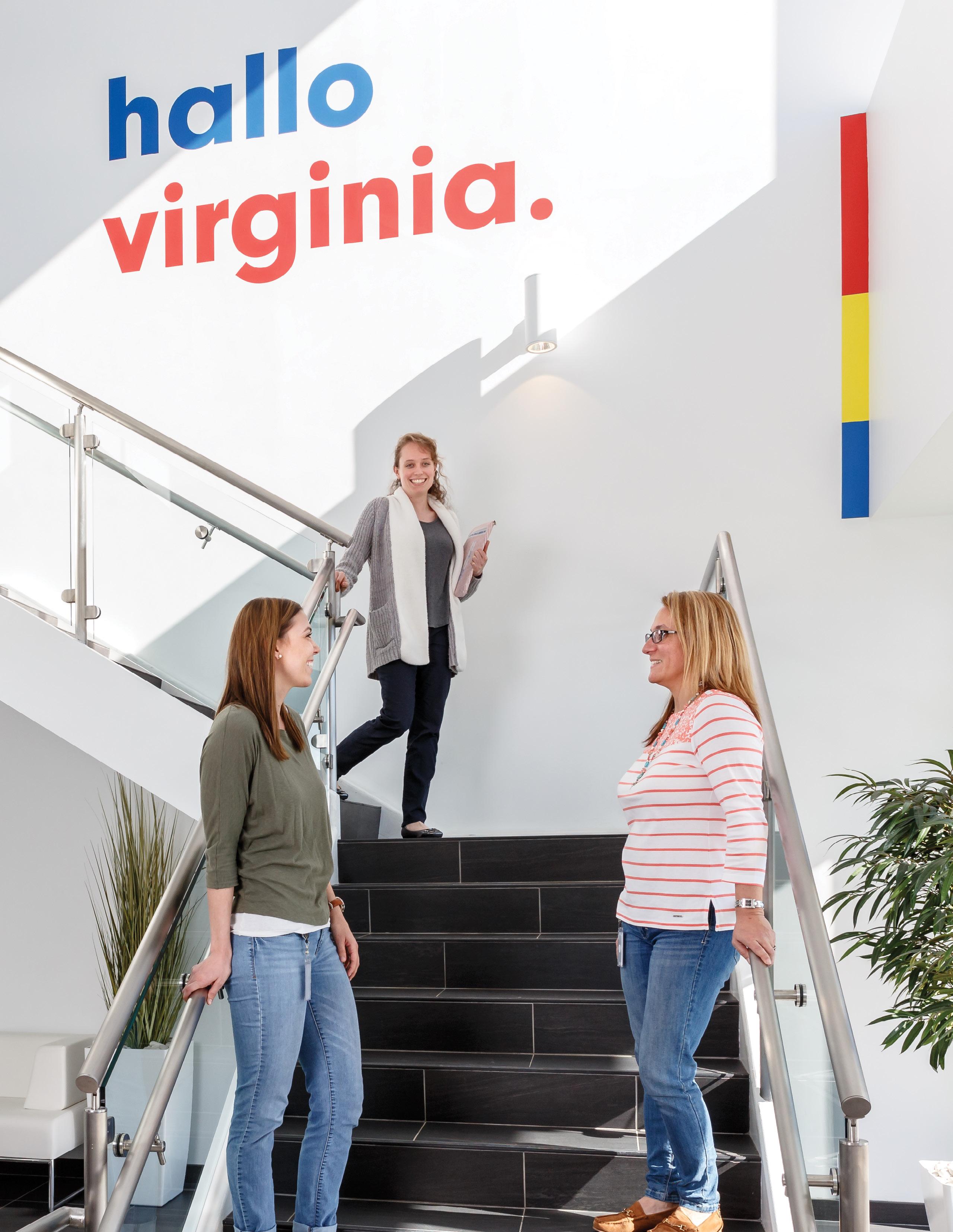
Lidl US, Arlington County
Governor’s Agriculture and Forestry Industries Development Fund
The Governor’s Agriculture and Forestry Industries Development Fund (AFID), administered by the Virginia Department of Agriculture and Consumer Services (VDACS), is a discretionary incentive designed to grow Virginia’s agriculture and forestry industries through strategic grants made to businesses that add value to Virginia-grown agriculture and forestry products. AFID grants are awarded to localities at the discretion of the Governor with the expectation that the grant will be critical to the success of a project and will result in the creation of new jobs and investment.
Grants are made to a political subdivision for a project under the following conditions:
■ The business beneficiary is creating new capital investment and jobs in Virginia
■ The business beneficiary is a facility that produces “value-added agricultural or forestry products”
■ At least 30% of the agriculture or forestry products to which the facility is adding value are grown in Virginia
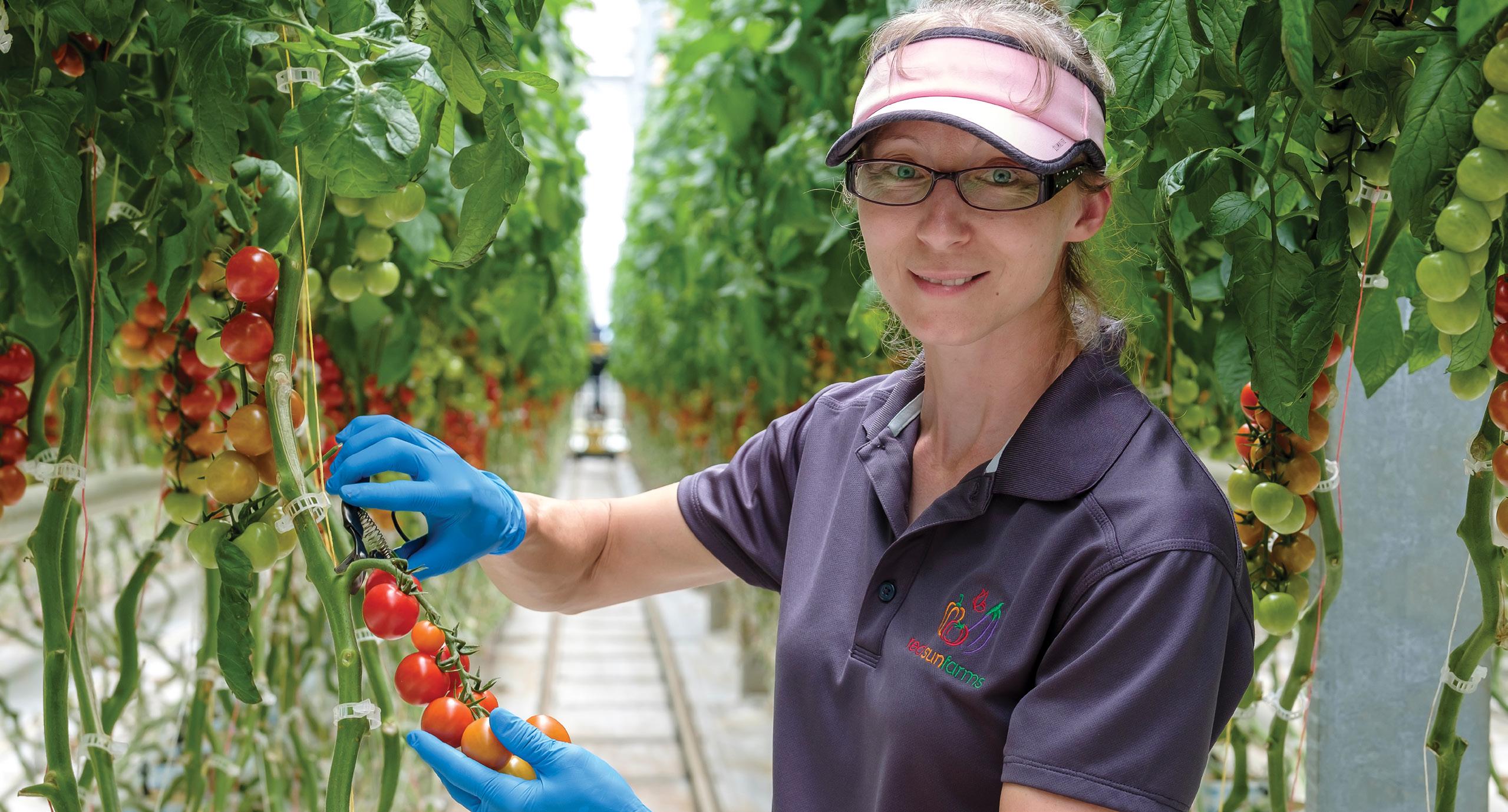
■ The grant may not exceed $500,000 unless the project is determined to have statewide or regional importance
■ The political subdivision applying for the grant provides a matching financial commitment
■ A performance agreement is executed between the applicant and the business beneficiary outlining the agreed upon job creation, capital investment, and purchase of Virginia-grown agriculture or forestry product
■ Public announcement of the project is coordinated with the Governor’s Office
Grants may be used for a variety of purposes, including public and private utility extension or capacity development on and off site; high-speed or broadband internet access extension or capacity development; road, rail, or other transportation access costs beyond the funding capability of existing programs; site acquisition; grading, drainage, paving, and any other activity required to prepare a site for construction; construction or build-out of buildings; or training.
(Above) Red Sun Farms received support from the Governor’s Agriculture and Forestry Industries Development Fund to establish its first U.S. high-technology greenhouse production operation in Pulaski County.
9
Red Sun Farms, Pulaski County
Virginia Offshore Wind Supplier Development Grant

The Virginia Offshore Wind Supplier Development Grant (VOWSD) encourages existing Virginia companies to enter the offshore wind supply chain. The program targets existing manufacturers or manufacturing-adjacent companies who have operated in Virginia for at least one year and have under 250 full-time employees.
All projects must meet the following eligibility requirements:
■ Project must be affiliated with a basic employer, meaning 51% or more of the facility’s revenue must be generated outside the Commonwealth
■ The project must result in qualifying capital investment in equipment of at least $40K
■ The company must be a manufacturer
■ The company must have a legal presence within the Commonwealth for at least one year prior to applying to the program and be in good standing the SCC
■ The company must be registered as a vendor in the Virginia Offshore Wind Supply Chain Partnership Directory at the time of application
■ The company must have under 250 full-time employees at the time of application
■ Although no minimum new job creation is required for VOWSD grant, the investment must not result in any net reduction in employment during the performance period
■ Public announcement of grant recipients will be coordinated by VEDP and the Governor’s Office
Coastal Virginia Offshore Wind Project
Regional and Local Assistance
Tobacco Region Opportunity Fund

The Tobacco Region Opportunity Fund (TROF), administered by the Virginia Tobacco Region Revitalization Commission, provides performance-based monetary grants and loans to localities in Virginia’s tobacco-producing regions (34 counties and six cities in southern and southwestern Virginia). These grants and loans assist in the creation of new jobs and investments, whether through new business attraction or existing business expansion and are awarded at the Commission’s discretion.
The TROF program is intended to support the goal of the Commission to revitalize and diversify the economies of tobacco-dependent regions and communities.
Localities in the Tobacco Region
Amelia County
Appomattox County
Bedford County
Bland County
City of Bristol
Brunswick County
Buchanan County
Buckingham County
Campbell County
Carroll County
Charlotte County
Cumberland County
City of Danville
Dickenson County
Dinwiddie County
City of Emporia
Floyd County
Franklin County
City of Galax
Grayson County
Greensville County
Halifax County

Henry County
Lee County
Lunenburg County
City of Martinsville
Mecklenburg County
City of Norton
Nottoway County
Patrick County
Pittsylvania County
Prince Edward County
Russell County
Scott County
Smyth County
Sussex County
Tazewell County
Washington County
Wise County
Wythe County
Tobacco Region
11
Source: VA Tobacco Region Revitalization Commission, VEDP
 Goodyear Tire & Rubber Company, the world’s largest aircraft tire and medium radial truck tire manufacturing plant, received support from the Tobacco Region Opportunity Fund (TROF) when expanding in Southern Virginia’s City of Danville.
Goodyear Tire & Rubber Company, Danville
Goodyear Tire & Rubber Company, the world’s largest aircraft tire and medium radial truck tire manufacturing plant, received support from the Tobacco Region Opportunity Fund (TROF) when expanding in Southern Virginia’s City of Danville.
Goodyear Tire & Rubber Company, Danville
We love the Martinsville workforce, as they are hard workers who are committed to producing high quality products while emphasizing people, safety, and excellent customer service. This will be our fourth expansion at the Martinsville facility, and we are excited to continue creating quality jobs in the state of Virginia.
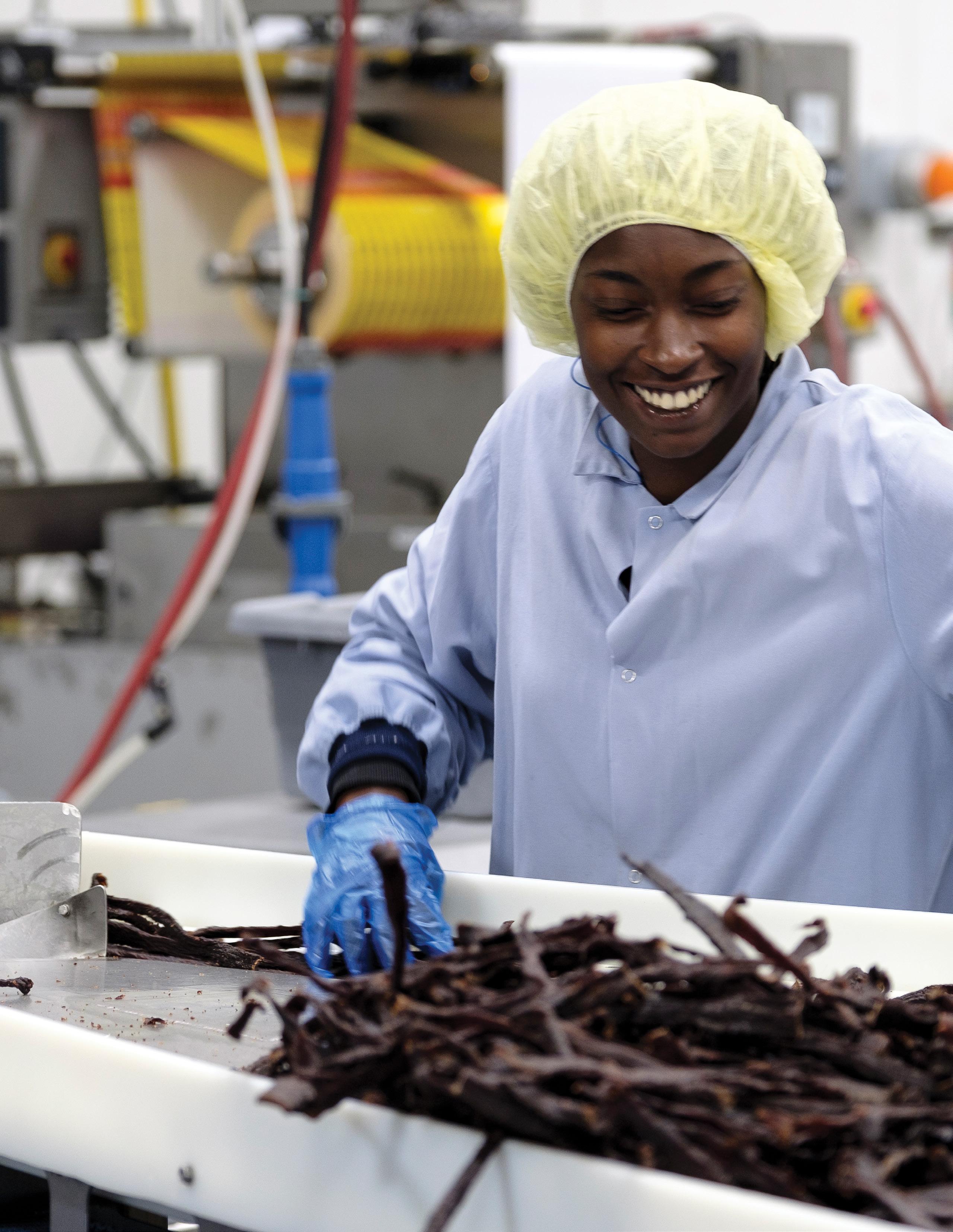 KARL SCHLEDWITZ Chairman and CEO, Monogram Food Solutions
KARL SCHLEDWITZ Chairman and CEO, Monogram Food Solutions
Monogram Food Solutions, Henry County CASE STUDY
MONOGRAM FOODS GETS RESULTS IN VIRGINIA
Monogram Grows Exponentially
Memphis, Tennessee-based Monogram Food Solutions purchased a plant in Henry County for its food processing operation in 2009, just five years after the company was founded. After ramping up quickly, the company announced an expansion just a year later. Upon landing additional customer business in 2014, Monogram needed to select one of its existing facilities to add capacity rapidly. The Henry County operation offered a proven track record of success and a workforce committed to Monogram Foods Solutions.
Virginia Meets Aggressive Timeline
Working within the constraints of a tight turnaround, Monogram aimed to expand at one of its existing facilities. The food processor had been pleased with the growth opportunities and quality of the workforce and training programs in Henry County, and thus considered the Commonwealth to be a strong contender for the competitive project. Virginia worked with the Martinsville-Henry County Economic Development Corporation to craft a robust proposal for the company’s review and offered solutions in the permitting process to keep the project on target and on schedule.
A Virginia Success Story
In December 2014, less than two months after receiving the proposal, Monogram Food Solutions announced it would invest $36 million to expand its Henry County operation in the Patriot Centre Industrial Park, creating 200 new jobs.
Given its successful partnership with the Commonwealth and Henry County on earlier expansions, Monogram again chose to grow the operation in 2015 with a $7.2 million investment to purchase and upfit a neighboring building in the industrial park to be used as a distribution warehouse. The project created 101 new jobs.
In 2018, Monogram Food Solutions issued yet another vote of confidence in the Commonwealth. The company committed to investing an additional $30 million in the Henry County facility to accommodate new and expanding contracts, thereby creating 300 new jobs. This was Monogram’s fifth expansion in less than a decade, bringing total job creation to over 870 and total capital investment to more than $80 million since 2009.
Monogram Food Solutions was awarded a grant from the Commonwealth’s Development Opportunity Fund (COF), a performance-based grant from the Virginia Investment Performance Program (VIP), several grants from the Tobacco Region Opportunity Fund (TROF), as well as a direct loan from the Virginia Small Business Financing Authority. The company was eligible for the Enterprise Zone Program, the Major Business Facility Job Tax Credit, sales and use tax exemptions on manufacturing equipment, and funding and services to support employee training activities through the Virginia Jobs Investment Program (VJIP).

14
Virginia Enterprise Zone Program
The Virginia Enterprise Zone (VEZ) Program, administered by the Virginia Department of Housing and Community Development (DHCD), assists with business development and expansion in targeted areas throughout the state called Enterprise Zones. Virginia’s Enterprise Zone Program offers two state incentives to qualified businesses and zone investors located in a Virginia Enterprise Zone. In addition to state incentives, each zone community offers additional local incentives to qualified businesses. In order to access Enterprise Zone incentives, companies must submit applications and all required attachments to DHCD by April 1 of each year.
Enterprise Zone Job Creation Grant
Qualified businesses in an Enterprise Zone are eligible for cash grants for permanent net, new jobs created over a four-job threshold that meet certain wage and benefit requirements. Qualified businesses receive up to $800 annually per grant eligible position filled by an employee earning 175% of the Virginia minimum wage who was offered health benefits. Qualified businesses receive up to $500 annually per grant eligible position filled by an employee earning at least 150% (125% in High Unemployment Areas or Small, Women- and Minority-owned (SWaM) certified businesses) of the Virginia minimum wage, who was offered health benefits.
Enterprise Zone Real Property Investment Grant
Qualified zone investors (entities and individuals) making a qualified investment in industrial, commercial, or mixed-use real property located within an Enterprise Zone are eligible for a cash grant. For companies investing less than $5 million, the maximum grant is equal to 20% of the excess above the minimum required investment, up to a maximum of $100,000. For companies investing more than $5 million, the maximum grant is equal to 20% of the excess above the minimum required investment, up to a maximum of $200,000. Total grant awards may not exceed the maximums specified above within any five-year period for a specific building or facility. Investment in rehabilitation/expansion projects must exceed $100,000 in qualified real property investments, while investments in new construction must exceed $500,000. Investments in machinery and tools and business personal property are not considered qualified real property investments.
Foreign Trade Zones
Foreign Trade Zones (FTZ) allow businesses to defer paying U.S. Customs duties on imported goods held within the zones until the goods enter the United States for domestic consumption. No duties are paid if goods are re-exported. Companies also receive the benefit of not having to pay duties on broken or scrapped product. Businesses are allowed to store goods within foreign trade zones for an unlimited period of time. They are also allowed to manufacture products within zones and pay duties at the duty rate of either the foreign parts used or on the finished product, whichever is most advantageous to the company. Virginia offers six general-purpose FTZs, designated by the U.S. Department of Commerce. Each of Virginia’s six FTZs are designated under the Alternative Site Framework (ASF) option, which allows greater flexibility when adding new zone operations as well as expedited FTZ Board applications. Any property within the ASF-designated area of a particular FTZ can obtain status as a usage-driven FTZ site. All zones provide space for storage, distribution, and light assembly operations.
15

Trex Company, Frederick County 16
Infrastructure Assistance
Rail Industrial Access Program

The Rail Industrial Access (RIA) Program, administered by the Virginia Department of Rail and Public Transportation (DRPT), provides funds to construct railroad tracks to new or substantially expanded industrial and commercial projects having a positive impact on economic development in Virginia. Funds may be used to construct, reconstruct, or improve part or all of the necessary tracks and related facilities on public or private property. Funds may not be used for right-of-way acquisition or adjustment of utilities.
Transportation Partnership Opportunity Fund
The Virginia Department of Transportation (VDOT) administers the Transportation Partnership Opportunity Fund (TPOF), which may be used to address transportation aspects of economic development opportunities. TPOF monies are awarded at the discretion of the Governor in the form of grants, revolving loans, or other financial assistance to an agency or political subdivision of the Commonwealth for activities associated with eligible transportation projects.
Economic Development Access Program
VDOT administers a program that assists localities in providing adequate road access to new and expanding manufacturing and processing companies, research and development facilities, distribution centers, regional service centers, corporate headquarters, and other basic employers with at least 51% of the company’s revenue generated from outside the Commonwealth. The program may be used to:
■ Improve existing secondary highway system roads and city streets to accommodate the anticipated additional and/or type of traffic generated by an eligible economic development site
■ Construct a new road from a publicly maintained road to the new eligible establishment’s primary entrance when no road exists
(Right) An associate receives items into a sortable tote at the Amazon Fulfillment Center in Chesterfield, which received support from the Economic Development Access (EDA) Program, as well as various Virginia incentives.
17
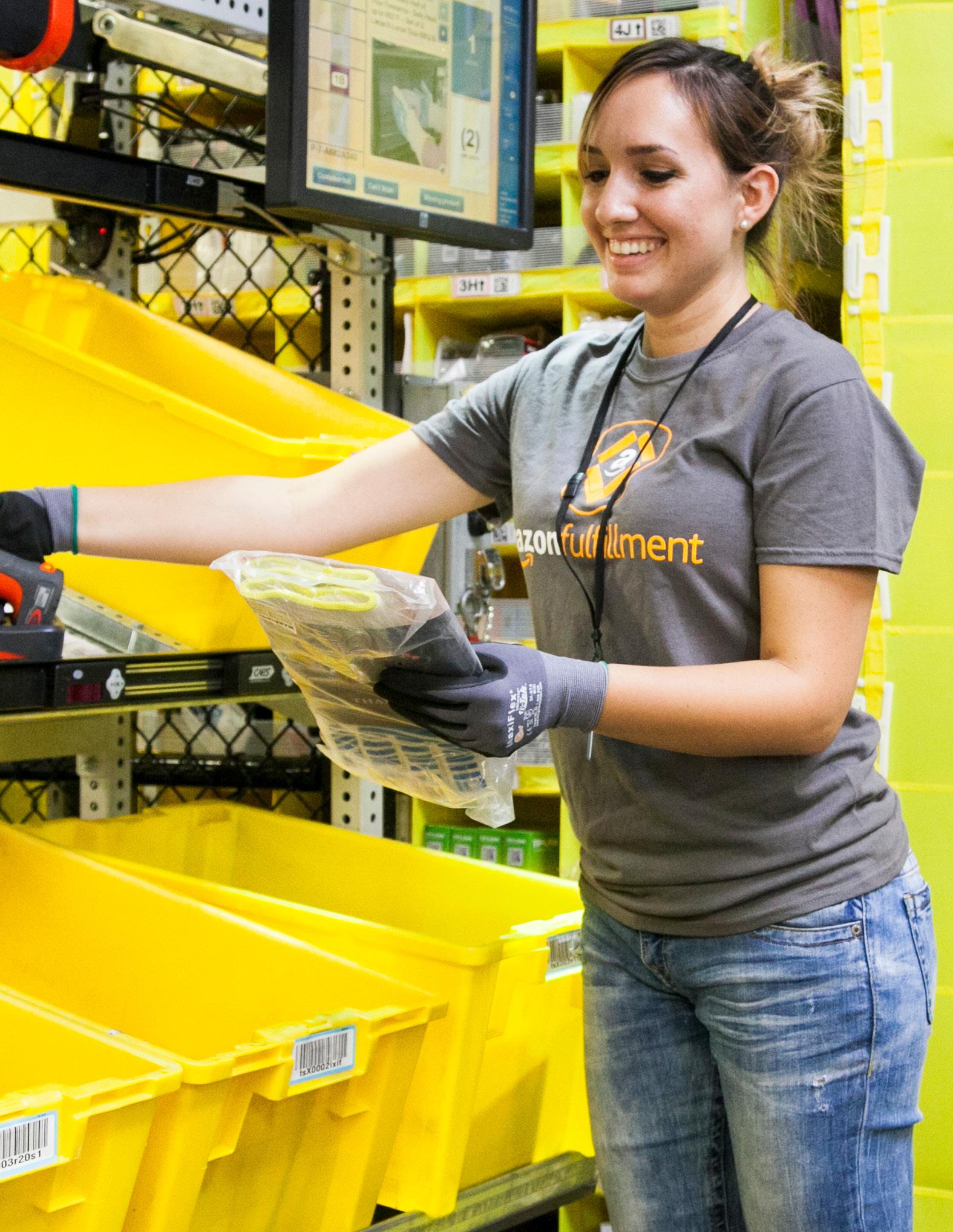 Amazon Fulfillment Center, Chesterfield County
Amazon Fulfillment Center, Chesterfield County
Tax Incentives
Corporate Income Tax
Virginia’s corporate income tax is 6% and no unitary tax is levied on Virginia companies’ worldwide profits. Corporations generally apportion their multistate income by using a three-factor formula that consists of a property factor, a payroll factor, and a double-weighted sales factor.
Virginia provides special apportionment formulas for certain motor carriers, financial corporations, construction corporations, railway companies, manufacturing companies, retail companies, and enterprise data centers. Of these, only the method that applies to manufacturing companies is optional. Manufacturing companies may elect to use single sales factor apportionment to determine their Virginia taxable income.
Corporate Income Tax Credits
Major Business Facility Job Tax Credit
Qualified companies locating or expanding in Virginia are eligible to receive a $1,000 income tax credit for each new full-time job created over a threshold number of jobs beginning in the first taxable year following the taxable year in which the major business facility commenced or expanded its operations.
■ Companies locating in enterprise zones or economically distressed areas are required to meet a 25-job threshold; all other locations have a 50-job threshold. The threshold number of jobs must be created within a 12-month period
■ The $1,000 credit is available for all qualifying jobs in excess of the threshold and may be claimed in equal installments over two years ($500 per year)
■ Non-qualifying jobs include seasonal or temporary jobs, positions in building and grounds maintenance, security, positions ancillary to the principal activities of the facility, and/or a job created when a position is shifted from an existing location within the Commonwealth to the new major business facility
■ Credits are available for taxable years beginning before July 1, 2025. Unused credits may be carried over for up to 10 years
■ For jobs on the payroll for less than the full calendar year, the credit will be prorated
Refundable Research and Development (R&D) Expenses Tax Credit
For taxable years beginning before January 1, 2025, businesses may claim a tax credit equal to 15% of the first $300,000 ($45,000) in qualified research and
development expenses incurred during the taxable year in Virginia; or they may claim a tax credit equal to 20% of the first $300,000 ($60,000) in qualified research and development expenses if the qualified research was conducted in conjunction with a Virginia college or university.
Major R&D Expenses Tax Credit
The Major R&D Expenses Tax Credit is an individual and corporate income tax credit for taxpayers with Virginia qualified research and development expenses in excess of $5 million for a taxable year. The tax credit is equal to 10% of the difference between the taxpayer’s qualifying expenses in the current year and 50% of the average amount of the qualifying expenses for the three previous years.
If the taxpayer didn’t have any qualifying R&D expenses in at least one of the previous three years, the amount of credit equals 5% of the expenses in the current year.
The research of a taxpayer applying for the Major R&D Expenses Tax Credit must meet the federal definition of qualified research under IRC § 41(d) to qualify for the credit. Qualified in-house or contract expenses include qualified research expenses, qualified services, wages, supplies, or qualified research consortium expenses.
Worker Training Tax Credit
Virginia employers are allowed to take an income tax credit for expenditures made by the employer for eligible worker training. Eligible worker training includes credit or noncredit courses that result in the employee receiving a workforce credential, or instruction or training that is part
19
of an apprenticeship. Eligible training also includes certain manufacturing-related orientation, instruction, or training for middle and high school students, through qualifying programs certified by the Department of Education.
The program has a spending cap of $1,000,000 per fiscal year. Application for credits must be made to, and the credits are issued by, the Commonwealth of Virginia Tax Commissioner.
Companies must calculate eligibility using one of the following methods:
■ If claiming the credit on the basis of credit or noncredit courses of eligible worker training, the credit is equal to 35% of expenses incurred by the business for eligible training, up to $500 per qualified employee per year, or $1,000 if the employee is considered a non-highly compensated worker
■ If claiming the credit on the basis of manufacturingrelated orientation, instruction, and training programs, the credit is equal to 35% of the direct costs associated with the program, not to exceed $2,000. Direct costs include salaries and wages, training equipment and materials, and the cost of space used to conduct training
Credits cannot exceed a company’s tax liability in any one taxable year, but unused credits may be carried forward for three years.
Green and Alternative Energy Job Creation Tax Credit
For taxable years beginning before January 1, 2025, a taxpayer will be allowed a credit against the Virginia personal or corporate income tax for each new green job that pays an annual salary of at least $50,000 that is created within the Commonwealth by the taxpayer. The amount of the annual credit for each new green job will be $500 per job per year for up to five consecutive years that the jobs is continuously filled.
A “green job” means employment in industries relating to the field of renewable, alternative energies, including the manufacture and operation of products used to generate electricity and other forms of energy from alternative sources that include hydrogen and fuel cell technology, landfill gas, methane extracted in Planning District 2, geothermal heating systems, solar heating systems, hydropower systems, wind systems, and biomass and biofuel systems.
Port Volume Tax Credit
Prior to December 31, 2025, a taxpayer that is an agricultural entity, manufacturing-related entity, or mineral and gas entity that uses port facilities in the Commonwealth and increases its port cargo volume at these facilities by a minimum of 5% in a single calendar year over its base year is eligible to claim a credit against its income tax liability. The amount of the credit is generally equal to $50 for each 20-foot equivalent unit (TEU), one unit of roll-on/roll-off cargo, or 16 net tons of non-containerized cargo above the base year port cargo volume, as applicable, transported through a port facility during a major facility’s base year.
International Trade Facility Tax Credit
Prior to December 31, 2025, a Virginia taxpayer is allowed a credit against its income tax liability if the taxpayer is engaged in port-related activities, uses maritime port facilities located in the Commonwealth, and increases the amount of cargo transported through Virginia maritime port facilities by at least 5%. The amount of the credit is equal to $3,500 per new qualified full-time employee that results from increased qualified trade activities by the taxpayer or 2% of the amount of capital investment made by the taxpayer to facilitate the increased eligible trade activities.
Barge and Rail Usage Tax Credit
Prior to December 31, 2025 a company that is an international trade facility, as defined under the Barge and Rail Usage Tax Credit, that transports cargo through Virginia ports by barge or rail, rather than by trucks or other motor vehicles on the Commonwealth’s highways, is allowed a credit against its income tax liability. The amount of the credit is $25 per 20-foot equivalent unit (TEU), or 16 tons of non-containerized cargo, or one unit of roll-on/roll-off cargo moved by barge or rail.
New Company Incentive Program
Eligible companies looking to establish a new presence in Virginia are offered a modified state corporate income tax and potential access to a grant or loan from the Commonwealth’s Development Opportunity Fund (COF). Eligible companies in traded sector industries that have no payroll or property in Virginia prior to January 1, 2018 will pay zero percent (0%) corporate Virginia income tax on the income associated with their new Virginia presence. To be eligible the company must on or after January 1, 2018, but before January 1, 2025, either (a) spend at least $5 million in new real property capital
20
investment in a qualified locality and create at least 10 new jobs in a qualified locality, or (b) create at least 50 new jobs in a qualified locality. Each new job must pay at least 150% of the Virginia minimum wage. The tax benefits will be available to eligible companies for six years. Visit VEDP.org to find a list of qualified localities.
Property Tax Incentives
Virginia does not tax property at the state level; real estate and tangible personal property are taxed at the local level. Moreover, Virginia differs from most states in that its counties and cities are separate taxing entities. A company pays either county or city taxes, depending on its location. If the company is located within the corporate limits of a town, it pays town taxes as well as county taxes. In addition, Virginia localities do not have separate school district taxes.
Virginia does not tax intangible property, which includes:
Manufacturers’ inventory; manufacturers’ furniture and fixtures; certified pollution control facilities and equipment; and solar energy equipment, facilities, and devices that collect, generate, transfer, or store thermal or electric energy; Pollution Control Equipment is exempt under § 58.1-3660
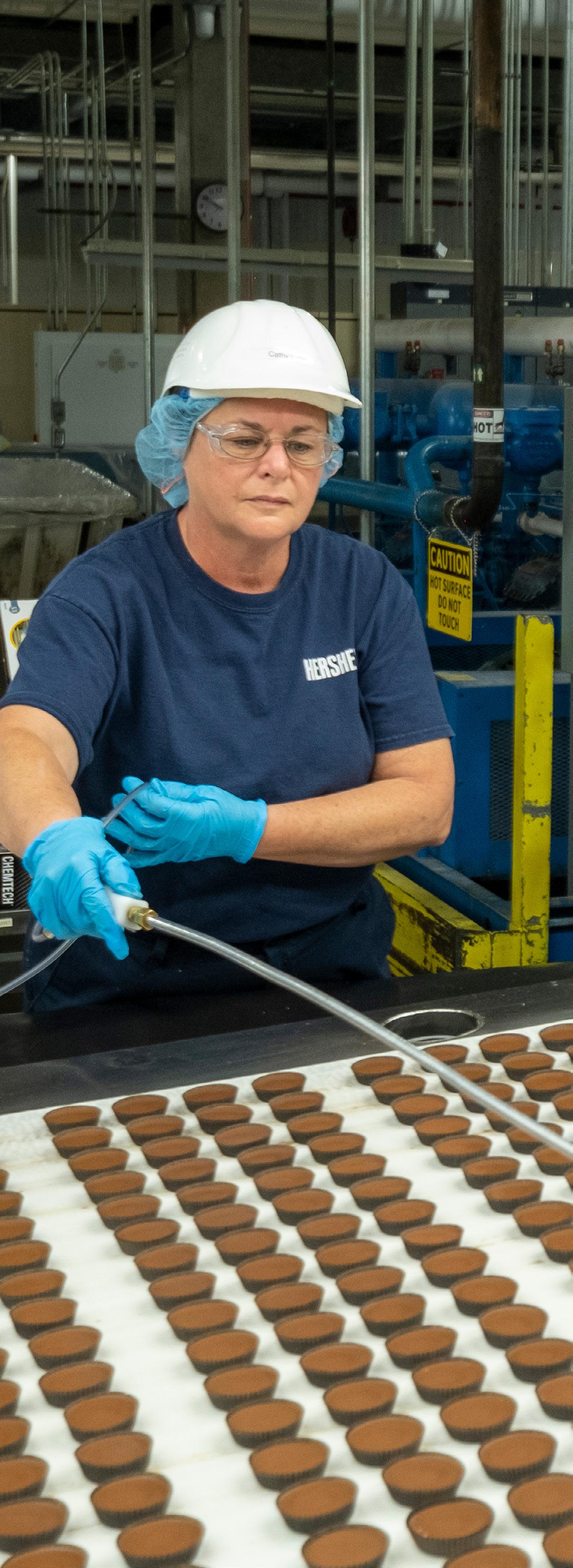
Localities have the option to fully or partially exempt the following property from taxation: Certified recycling equipment; rehabilitated commercial/ industrial real estate for up to 15 years; manufacturers’ generating and co-generating equipment; certified solar energy devices; and environmental restoration sites (eligible real estate in the Virginia Voluntary Remediation Program)
Localities may elect to tax the following tangible personal and real property at reduced rates: Research and development tangible personal property; equipment used for biotechnology research, development, and production; semiconductor manufacturing machinery and tools; computer hardware and peripherals; aircraft; clean-fuel vehicles; tangible personal property used in the provision of certain internet services; tangible personal property owned by qualifying businesses in their first two taxable years; and energy-efficient buildings
21
The Hershey Company, Augusta County
Agricultural Materials and Equipment Sales & Use Tax Exemption
Virginia offers sales and use tax exemptions for use by a farmer for purchase of tangible personal property for use in producing agricultural products for market, medicine and drugs sold to a veterinarian, or property used to produce agricultural products for market in an indoor, closed, controlled environment commercial agricultural facility.
Some important exemptions include:
■ Commercial feeds
■ Seeds
■ Livestock
■ Agricultural chemicals
■ Farm machinery
■ Property used directly in producing agricultural products for market in an indoor, closed, controlledenvironment commercial agricultural facility.
Commercial and Industrial Sales & Use Tax Exemptions
Virginia’s combined state and local sales and use tax ranges between 5.3% and 7.0% depending upon the locality. A seller is subject to a sales tax imposed on gross receipts derived from retail sales or leases of tangible personal property, unless the retail sales or leases are specifically exempt by law. When a seller does not collect the sales tax from the purchaser, the purchaser is required to pay a use tax on the purchase, unless the use of the property is exempt. Some important exemptions include:
■ Manufacturers’ purchases used directly in production, including machinery, tools, spare parts, industrial fuels, and raw materials
■ Items purchased for resale by distributors
■ Certified pollution control equipment and facilities
■ Custom computer software
■ Utilities delivered through lines, pipes, or mains
■ Purchases used directly and exclusively in research and development in the experimental or laboratory sense
■ Most film, video, and audio production-related purchases
■ Machinery, tools, and equipment of a public service corporation used to generate energy derived from sunlight or wind
■ Charges for internet access and sales of software via the internet
■ Purchases used directly and exclusively in activities performed in cooperation with the Virginia Commercial Space Flight Authority
■ Semiconductor clean rooms or equipment and other tangible personal property used primarily in the integrated process of designing, developing, manufacturing, or testing a semiconductor product
■ Machinery, tools, equipment, and materials used by a licensed brewer in the production of beer and materials such as labels and boxes for use in packaging and shipment for sale
Data Center Retail Sales & Use Tax Exemption
Virginia offers a data center retail sales and use tax exemption (DCRSUT Exemption) on qualifying computer equipment or enabling software purchased or leased for use in certain data centers in the Commonwealth meeting minimum investment and job creation requirements as outlined on VEDP.org
(Left) The Hershey Company’s expansion in Augusta County qualified the leading North American chocolate producer and global snacks company to receive Sales and Use Tax Exemptions on manufacturing equipment, as well as a Major Business Facility Job Tax Credit for new, full-time jobs created.
22
META FRIENDS THE COMMONWEALTH
To meet the ever-growing demands of serving substantial amounts of traffic, Meta, formally known as Facebook, needed to invest in a new data center to increase capacity while also keeping its energy footprint low. After zeroing in on the East Coast, Facebook set out to find the location of its eighth U.S. data center.
Virginia Checks Every Data Center Box
Home to nearly 700 data centers, Virginia boasts one of the largest data center markets in the world, thanks to the Commonwealth’s access to a robust fiber and power network that matches or exceeds virtually every domestic market and most major financial centers around the globe. With approximately 70% of the world’s internet traffic passing through Virginia, the Commonwealth’s sophisticated IT infrastructure is second to none.
Henrico County is for Data Centers
Henrico County, located in Greater Richmond, offered a shovel-ready site and fast-track permitting. White Oak Technology Park, a master-planned, high-tech manufacturing center conveniently located at the intersection of I-295 and I-64, is optimally designed to meet the scale and digital speed requirements for data centers. White Oak houses the QTS Richmond Network Access Point (NAP) and DE-CIX Richmond, offering access to subsea cables MAREA, BRUSA, SAEx1, and Dunant and providing a gateway to the largest interconnection ecosystem in North America. The park is served by Dominion Energy via two 230 KVA transmission lines, has significant water and sewer capacity, and offers connectivity through multiple fiber providers.
While Henrico County clearly met the critical elements of Meta’s search, the environmentally conscious company also prioritized being able to source clean and 100% renewable energy for its newest data center. Dominion Energy and Meta worked together to create a renewable energy tariff called Schedule RF. The tariff allows Meta and other large energy users to meet their needs through the addition of renewable energy sources. As a secondary economic benefit, the renewable energy projects served under this tariff must be completed in Virginia.
Facebook is eligible for the Data Center Retail Sales and Use Tax Exemption (DCRSUT Exemption) on qualifying computer equipment or enabling software purchased or leased for use in certain data centers in the Commonwealth meeting minimum investment and job creation requirements.
Meta Updates Status in Virginia
In October 2017, Meta announced plans to establish a 970,000-square-foot data center in the White Oak Technology Park in Henrico County. The company committed to investing $750 million in the project, as well as hundreds of millions of additional dollars in the construction of multiple solar facilities to service Meta’s Henrico Data Center with 100 percent renewable energy.
Site work began in February 2018, thanks to Henrico County’s fast permitting approval program and the development-ready site at White Oak Technology Park. In September 2018, Meta announced an additional investment of $750 million to construct three new 500,000-square-foot buildings. The first phase of the Henrico Data Center campus officially went online in August 2020 and is being delivered in multiple phases, with an anticipated completion date of late 2023.
The $1 billion campus is estimated to be at least four football fields long, a total of 2.5 million square feet across more than 350 acres, and cooled using outside air. At full operational capacity, Meta will employ at least 200 Virginians in positions that include technical operations, electricians, air-conditioning and heating specialists, culinary, cleaning, logistics, security, and more.
Meta has worked closely with Dominion Energy and other partners to bring over 500MW of new renewable energy to the Virginia grid, and the Henrico campus is supported by 100 percent new solar energy sourced from the Commonwealth. In 2021, Meta announced that the Henrico Data Center was awarded LEED Gold certification, a program that focuses on energy modeling rather than actual energy consumption. Meta’s Henrico operations were at least 80% more water efficient than the average data center, 100% solar powered, and recycled over 50,000 tons (82%) of its construction waste in 2021.
Virginia offers Meta the full package: infrastructure with room to grow, access to renewable energy, and a talented pool of employees to keep the Henrico Data Center online for years to come.
CASE STUDY
23
Virginia has been a home to the internet since the tech industry’s earliest days. And thanks to Henrico County’s robust infrastructure and attractive business climate for data center development, we could not be more thrilled to locate our next data center here. When considering new data center locations, we not only look for clean and renewable energy solutions, but great partnerships within the local community, a strong pool of local talent, excellent access to fiber, and a robust electric grid. Henrico County and the Commonwealth of Virginia has it all.
 Meta Data Center (Rendering), Henrico County
RACHEL PETERSON Vice President for Data Center Strategy, Meta
Meta Data Center (Rendering), Henrico County
RACHEL PETERSON Vice President for Data Center Strategy, Meta
MORGAN OLSON, LLC STEPS INTO SOUTHERN VIRGINIA
A Transformational Investment
Virginia’s Governor announced that North America’s leading manufacturer of all-aluminum walk-in step vans would invest $57.8 million to establish an assembly operation in the former IKEA plant in Danville-Pittsylvania County.
Headquartered in Sturgis, Michigan, Morgan Olson’s legacy of building iconic step vans began in 1946 with the production of the first “all-aluminum” step van. Today, Morgan Olson’s products are used to deliver online purchases to homes and businesses throughout North America.
The 703 new jobs created through Morgan Olson’s investment will also diversify employment opportunities available to the citizens of Danville-Pittsylvania County. The project is expected to have an additional indirect employment impact of 311 jobs, and will include the development of fabrication supply chain suppliers and infrastructure support, maintenance and repair support, and subcontractors to modify, build, and install equipment needed to convert the plant from furniture manufacturing to heavy-duty truck manufacturing.
With this major project, Morgan Olson ensured the soon-to-be vacant IKEA plant would remain in productive use while substantially increasing the number of employees at the operation, becoming the largest private employer in Pittsylvania County. Icing on the cake: former IKEA employees would receive priority consideration as part of the company’s hiring process.
As Morgan Olson began interviewing former IKEA employees for it’s professional staff, a team of expert instructional designers from the Virginia Talent Accelerator Program and Danville Community College traveled to Morgan Olson’s plant in Loudoun, Tennessee, to gain an understanding of the processes, best practices, and training needs for the new Virginia operation.
The team returned a few months later to gather more detailed information and capture video footage of workers performing assembly tasks.
This video was being utilized in process training classes that provide new hires with a clear understanding of
hazards, and quality considerations in each step of the company’s manufacturing process. Trainees also learn Morgan Olson’s unique process terminology.
Following a job fair for former IKEA employees and a second job fair that was open to the public, the Virginia Talent Accelerator Program team conducted of pre-hire training, introducing job candidates to riveting, measuring, and assembly procedures. This training provided applicants with a preview of their future work while enabling Morgan Olson to survey each candidate’s performance — a unique opportunity to gauge job fit before employment commitments are made.
Post-hire training classes began in mid-March as part of a comprehensive program in safety, quality, communication skills, and Lean production, along with extensive hands-on instruction in riveting and assembly. This training continued until all 703 employees were hired. Production at the Danville-Pittsylvania County plant began in early June, with plans to be at full production by July 2022.
To lay the foundation for its collaborative culture, Morgan Olson executives requested extensive leadership training. In response, the Virginia Talent Accelerator Program team developed an immersive four-week program tackling topics such as emotional intelligence, A3 thinking, conflict resolution, and managing across generations. It was delivered to every team lead and supervisor. Following that, a two-week leadership training was delivered to every manager. The training had such a positive impact on the Virginia operations, Morgan Olson asked the Talent Accelerator team to travel to the company’s Michigan and Tennessee plants to deliver the same training. Since this would be outside the program’s scope of cost-free services for job creation in Virginia, the Talent Accelerator’s local partner on the project, Danville Community College, sprang into action. The college quickly prepared a proposal and the Talent Accelerator team delivered five rounds of training at Morgan Olson’s other locations. The company is so proud of the training, they dubbed it, The Morgan Olson Leadership Academy.
CASE STUDY
25
A New Legacy
Securing a project of this magnitude brings farreaching benefits. Morgan Olson has demonstrated a commitment to longevity in Virginia — in addition to the 925,000-square-foot plant, the company also purchased more than 100 acres of surrounding property for future growth and development.
Southern Virginia boasts a rich legacy of manufacturing and offers world-class training institutions that are partnering with the company to create specific programs to prepare its new workforce. Morgan Olson’s investment will further bolster this 21st-century industry sector in the region and the Commonwealth for many years to come.
One of the most attractive aspects of locating in Danville-Pittsylvania County is that we will be able to take advantage of the new Virginia Talent Accelerator Program, which will help us quickly attract and train the high-quality workforce we need to deliver for our customers.
Morgan Olson, the leading producer of aluminum walk-in vans, receives support from the Virginia Talent Accelerator Program to help expedite recruiting and shorten the new-hire learning curve. Program benefits are delivered as customized services provided at no charge to eligible companies as an incentive for job creation.
The company is also eligible to receive a MEI custom performance grant, a grant from the Tobacco Region Opportunity Fund, state benefits from the Virginia Enterprise Zone Program, Sales and Use Tax Exemptions on manufacturing equipment, and a Major Business Facility Job Tax Credit for new, full-time jobs created.
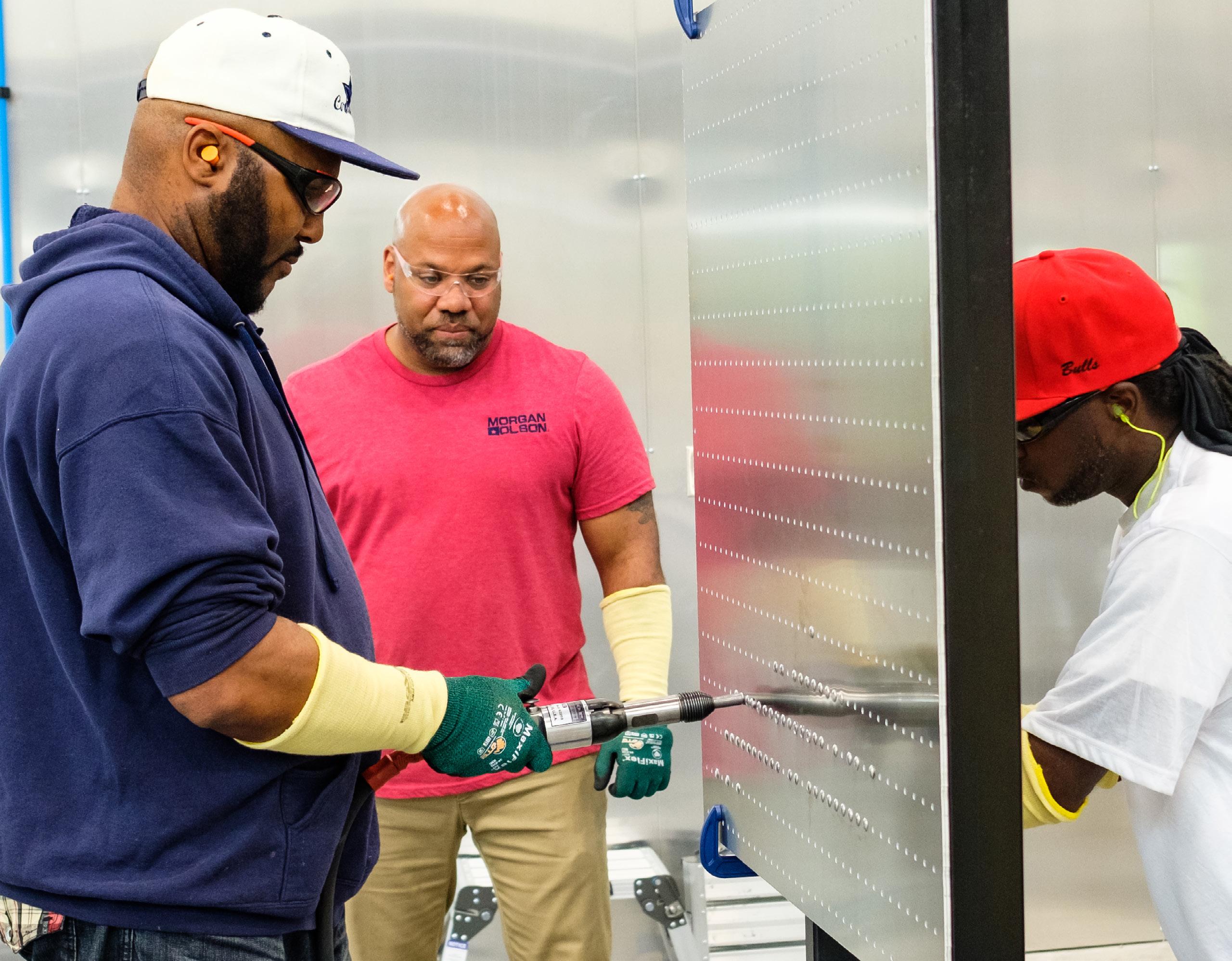 Morgan Olson, Pittsylvania County
MIKE OWNBEY President, Chief Operating Officer, Morgan Olson
Morgan Olson, Pittsylvania County
MIKE OWNBEY President, Chief Operating Officer, Morgan Olson
26
The Commonwealth of Virginia and the City of Richmond provide an environment for GSK Consumer Healthcare to build leading R&D capabilities, including access to world-class talent and universities, while also offering an attractive cost of living and favorable business operating costs.
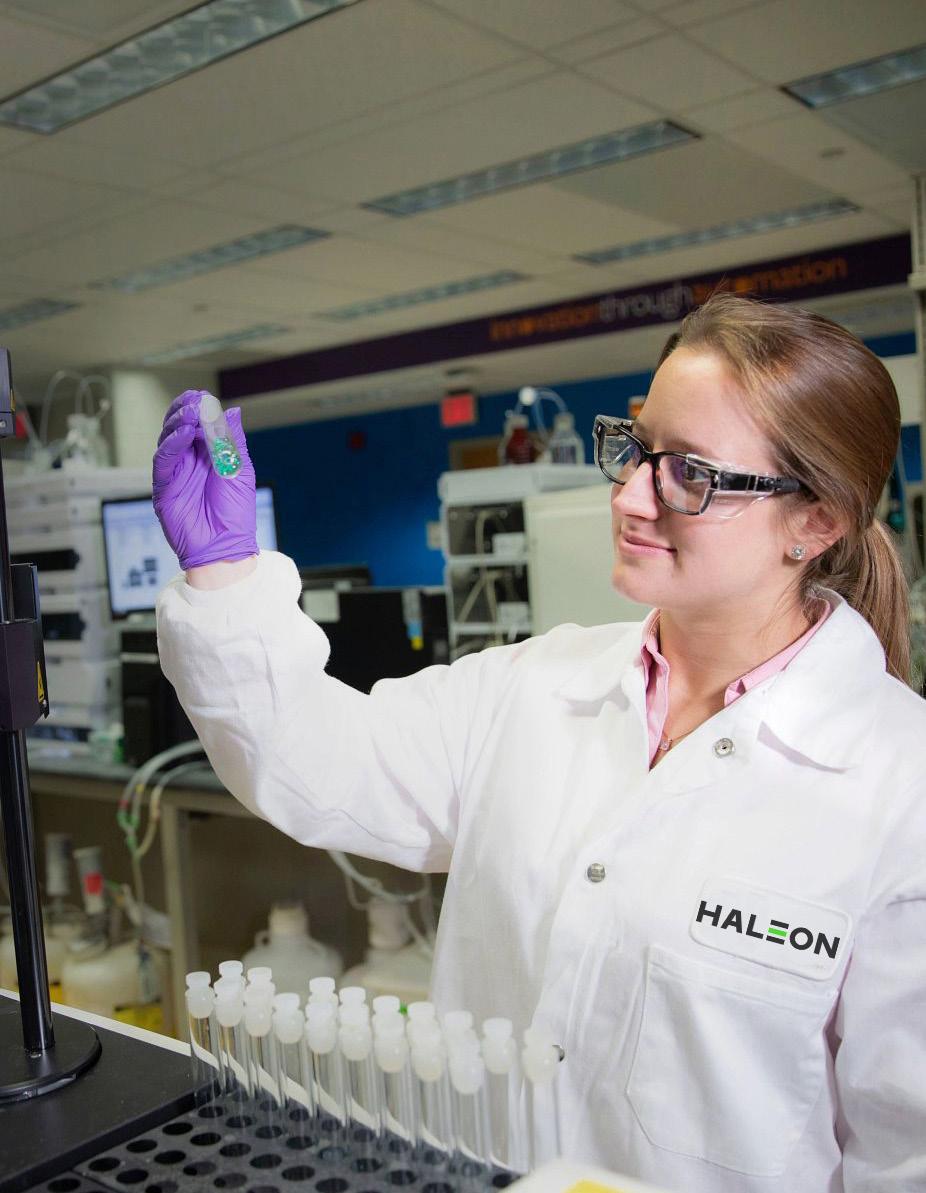 Haleon (formerly GSK Consumer Healthcare), Richmond
DR. PETER JOHN RAMSEY, P h. D. Chief Scientific Officer, Haleon (formerly GSK Consumer Healthcare)
Haleon (formerly GSK Consumer Healthcare), Richmond
DR. PETER JOHN RAMSEY, P h. D. Chief Scientific Officer, Haleon (formerly GSK Consumer Healthcare)
Recruitment and Training Incentives
Virginia Talent Accelerator Program
The Virginia Talent Accelerator Program accelerates facility start-ups and expansions by expediting recruiting and shortening the new-hire learning curve. Program benefits are delivered as customized services provided at no charge to eligible companies as an incentive for job creation.
In addition to recruiting and customized training services, the Virginia Talent Accelerator Program offers a robust suite of organizational development and operational excellence training and consulting services. These services help companies establish a collaborative culture and optimize individual performance.
The highly customized job-specific training services are delivered using methodologies and media determined to be most effective for accelerating learning in each topic. These can include:
■ Hands-on training
■ Simulations
■ Broadcast-quality videos
■ Instructor-led classroom sessions
Virginia Jobs Investment Program
■ Illustrated work instructions
■ Animations
The Virginia Jobs Investment Program (VJIP) is a vital part of the Commonwealth of Virginia’s economic development efforts. VJIP is a performance-based discretionary incentive that provides funding and assistance to companies creating new jobs or experiencing technological change. VJIP funding helps to offset recruitment and training costs for new or expanding companies and companies retraining their employees. Funding for each net new full-time job created or full-time employee retrained is determined by an assessment of the company’s recruiting and training activities, as well as the project’s expected benefit to the Commonwealth, and is subject to approval by the Secretary of Commerce and Trade. Funding is reimbursable 90 days after a new employee is hired. In addition to direct funding, Business Managers offer human resource consultative support at no charge, including facilitating relationships with other workforce and education partners and programs.
New Jobs Program
The New Jobs Program is a vital part of the Commonwealth of Virginia’s economic development efforts, providing services and funding to offset the cost of recruiting and training new workers. The program targets expansions of existing companies or new facility locations that involve competition with other states or countries. Qualifying companies must create a minimum of 25 net, new, full-time jobs and make a new capital investment of at least $1 million.
Small Business Retraining Program
The Small Business Retraining Program supports companies that have 250 employees or less companywide.Qualifying companies must make a new capital investment of at least $100,000 directly associated with the retraining efforts and need to retrain at least five full-time positions.
Retraining Program
The Retraining Program supports existing Virginia companies that are undergoing integration of new technology into their production process, a change of product line in keeping with marketplace demands, or substantial change to their service delivery process that would require assimilation of new skills and technological capabilities by their existing labor force. The program targets expansions of existing companies that involve competition with other states or countries. Qualifying companies must make a new capital investment of at least $1 million directly associated with the retraining efforts and need to retrain at least 25 full-time positions.
(Left) Haleon (formerly GSK Consumer Healthcare), worked with the Virginia Talent Accelerator Program team to develop a recruitment campaign that helped the company identify and attract specialized talent to meet its staffing needs.
28
WORKFORCE, LOCATION DRAW ADP TO VIRGINIA
With a number of business units operating throughout the Northeast, ADP, Inc. saw the opportunity to centralize certain operations in one location as a way to improve efficiency, increase cohesion, and maximize resources. The global provider of cloud-based human capital management solutions wanted an urban space that could accommodate its needs and attract a strong pipeline of talent.
Norfolk’s Dynamic Downtown with Robust Talent Pool
The City of Norfolk, with its walkable downtown, public transportation offerings, affordable housing, and entertainment options, has attracted millennials in full force. Long known for being home to the world’s largest naval station, Norfolk annually absorbs exiting military into its workforce, while also benefiting from the local higher education system.
In addition to boasting ADP’s target workforce, Norfolk could offer a state-of-the-art office building to accommodate ADP’s needs at a competitive price. Set just steps from the harbor, the nearly 300,000-square-foot facility at 2 Commercial Place has the space and layout ADP officials envisioned for its regional customer service center. The former bank building’s prestige and location in the heart of the city was the right fit.
ADP Transforms Norfolk
In March 2016, ADP announced plans to invest $32.25 million to establish a regional customer service center in the City of Norfolk, creating more than 1,800 new jobs. Today, ADP employs more than 2,200 at its Norfolk facility — well over the estimated job creation — and is a marquee company on Norfolk’s corporate roster and an active member of the community.
ADP was awarded a grant from the Commonwealth’s Development Opportunity Fund (COF). The company was eligible for the Major Business Facility Job Tax Credit and Sales and Use Tax Exemption on manufacturing equipment, in addition to funding and services to support employee training activities through the Virginia Jobs Investment Program (VJIP).

CASE STUDY
29

ADP, INC., Norfolk
Virginia Registered Apprenticeship Program
Virginia offers a state tax credit to employers who establish Registered Apprenticeships. Registered Apprenticeship consultants are positioned throughout the Commonwealth to provide support and technical expertise to employers in creating Registered Apprenticeship Programs. Additional resources which offset training costs for the Related Technical Instruction component of Registered Apprenticeship Programs are available in partnership with many of Virginia’s Community Colleges.
New Economy Workforce Credential Grant Program (FastForward)
Through Virginia’s community colleges and higher education centers, employers can benefit from shortterm training of employees provided by FastForward, a program that aligns the state’s workforce development investments to support the growth of Virginia’s industry
sectors. FastForward develops industry-endorsed, competency-based workforce training programs for in-demand jobs.
G3 Program
Virginia’s G3 program offers tuition-free community college to low- and middle-income students who pursue jobs in high-demand fields. G3, which stands for “Get Skilled, Get a Job, Get Ahead,” provides financial support to cover tuition, fees, and books for eligible students at Virginia’s two-year public institutions. The G3 program, which brings new workers into key industries including information technology, is one of the first in the nation to provide qualifying students at the lowest income levels with wraparound financial assistance to help with expenses such as food, transportation, and child care as they pursue higher education and vocational training.
Management and Technical Support
The Virginia Innovation Partnership Corporation
The Virginia Innovation Partnership Corporation (VIPC), formally known as CIT, leverages public and private technology sector investments to develop Virginia’s innovation economy. By concentrating on the early commercialization and seed funding stages of innovation, VIPC helps innovators and tech entrepreneurs launch and grow new companies, create high-paying jobs, and accelerate economic growth throughout the entire state of Virginia. VPIC is the non-profit operations arm of the Virginia Innovation Partnership Authority (VIPA).
VIPC Funding Programs
VIPC’s Commonwealth Commercialization Fund (CCF) fosters innovative and collaborative efforts in Virginia. Combining two legacy state programs, the Commonwealth Research Commercialization Fund (CRCF) and the Virginia Research Innovation Fund (VRIF). CCF grants support technologies with a high potential for economic development and job creation that position the Commonwealth as a national leader in science- and technology-based research, development, and commercialization.
Currently issued by the State Council for Higher Education in Virginia, the Commonwealth Research and Technology (R&T) Strategic Roadmap, is a comprehensive planning
tool used to help identify research areas for economic development and institutional focus. It’s used by elected and other officials to pinpoint industry sectors with commercial promise to drive Virginia’s economy, and for which funding may be available through the Commonwealth Commercialization Fund (CCF) and the Virginia Research Investment Fund (VRIF). Additionally, it helps unify and inform organizations such as public and private universities.
The Virginia Venture Partners (VPP), formerly CIT GAP Funds, place equity investments in Virginia-based technology companies with over 1,000 investors and $1.1 billion in private capital investment. While supporting a diverse range of sectors and industries,
31
VVP has invested in over 240 new companies and supported the creation of 6,500 jobs. VVP invests with the goal of generating significant economic returns for entrepreneurs, co-investors, and the Commonwealth of Virginia.
Because the availability of early-stage capital is critical for many emerging technology companies, VIPC offers the Federal Funding Assistance Program (FFAP). FFAP identifies and accelerates opportunities for Virginia’s small technology businesses to obtain government contracts through Small Business Innovation Research (SBIR) and Small Business Technology Transfer (STTR). In 2018 VIPC supported 57 companies who received $71 million in SBIR/STTR funding. VIPC is one of 24 grantees for SBA’s Federal and State Technology (FAST) Partnership Program.
The Virginia Founders Fund (VFF) aids underrepresented entrepreneurs in the Commonwealth by providing them with seed funding. VFF focuses on women founders and founders of color developing companies in the software, hardware, life science, clean tech, and the technology services industry.
VIPC’s Regional Innovation Fund (RIF) awards competitive grants to entrepreneurial support organizations (ESOs) that serve Virginia’s science and technology-based entrepreneurs and ecosystems. RIF grants can be used for general operations and programmatic support.
Telework Incentives
Telework Incentives
Successful awardees may receive subsequent funding if they continue to achieve measurable economic development outcomes and impacts.
VIPC Market Development
VIPC also focuses on developing target markets in order to meet the needs of the Commonwealth. This is accomplished by VIPC’s role in developing foundations for Smart Community Initiatives, information acquisitions for Virginia Unmanned System Center, and investing resources into Cybersecurity.
VIPC leads Smart Community Initiatives across the Commonwealth through direct outreach, partnerships, grants, and information resources. VIPC provides a robust support ecosystem for IoT and smart tech innovators via the Smart City Works actuator and several Living Labs.
The Virginia Unmanned Systems Center at VIPC is the nexus for Virginia’s activity in UxS - Air, Land, Sea, and Space. VIPC is the primary source for information, grants, partnerships, and seed funding for UxS in the Commonwealth.
VIPC invests capital, time, and resources in developing the Cybersecurity industry in the Commonwealth. VIPC continues to proactively build and support the Women in Cyber community across the nation.
Many companies across the U.S. are shifting a significant portion of their workforce to permanent telework. That wave of increased telework also will affect how companies make decisions when evaluating locations for future projects. The Commonwealth of Virginia has adopted new statutory language that enables VEDP to take telework positions, held by Virginia residents, into account when offering performance-based economic development incentives for new, competitive site-selection projects.
VEDP incentives that may apply:
■ Commonwealth’s Development Opportunity Fund
■ Major Eligible Employer Grant Program
■ Virginia Economic Development Incentive Grants
■ Virginia Investment Performance Grant
■ Virginia Jobs Investment Program
■ Virginia Talent Accelerator Program
■ New Company Incentive Program
■ Data Center Retail Sales & Use Tax Exemption
32
International Trade
VEDP Division of International Trade
The mission of VEDP’s Division of International Trade is to increase the number of Virginia companies selling overseas and their volume of international business. International Trade annually serves 450 Virginia companies by identifying new international markets, developing market entry strategies, optimizing their supply chains, and locating distributors and representatives for products or services.
International Trade maintains offices across the state and offers a global network of on-call consultants in 120 countries, who provide international market research and set up one-on-one meetings with prospective clients for Virginia exporters. Additionally, the team conducts more than 20 international trade missions and trade shows annually to introduce Virginia products and services to global markets. Virginia businesses interested in increasing international sales benefit from International Trade’s export development programs, services, and grants, including:
■ International Market Research
■ Trade Missions and Trade Shows
■ State Trade Expansion Program (STEP) Grant
■ Global Defense Program (GDP)
■ Trade Show Program
■ Virginia Leaders in Export Trade (VALET)
■ Supply Chain Optimization Program
■ Virginia Global Business Internship Program
Through the Virginia Leaders in Export Trade (VALET) program, International Trade works with companies to accelerate their international sales into international markets. Since its inception, over 375 companies representing a wide cross-section of industries have been accepted into and graduated from the VALET program.
I can truly say that I have learned a great deal about exporting and how to overcome significant hurdles doing business overseas through our partnership with VEDP International Trade.
VALET PROGRAM HELPS MASSIMO ZANETTI BEVERAGE
Massimo Zanetti Beverage Explores New International Markets
Massimo Zanetti Beverage (MZB) is the largest privately held, family-owned coffee company in the world. With coffee expertise that dates back to 1871, MZB provides a world-class coffee solution to all channels and segments of the industry.
In 2012, MZB reached out to a regional VEDP International Trade Manager for assistance with the customs and licensing documents needed to export its coffee products into China. VEDP International Trade utilized its representative in China who was instrumental in helping MZB overcome cumbersome labeling and licensing issues across the company’s portfolio of brands. With VEDP’s help, MZB now has 27 different products licensed for import into China.
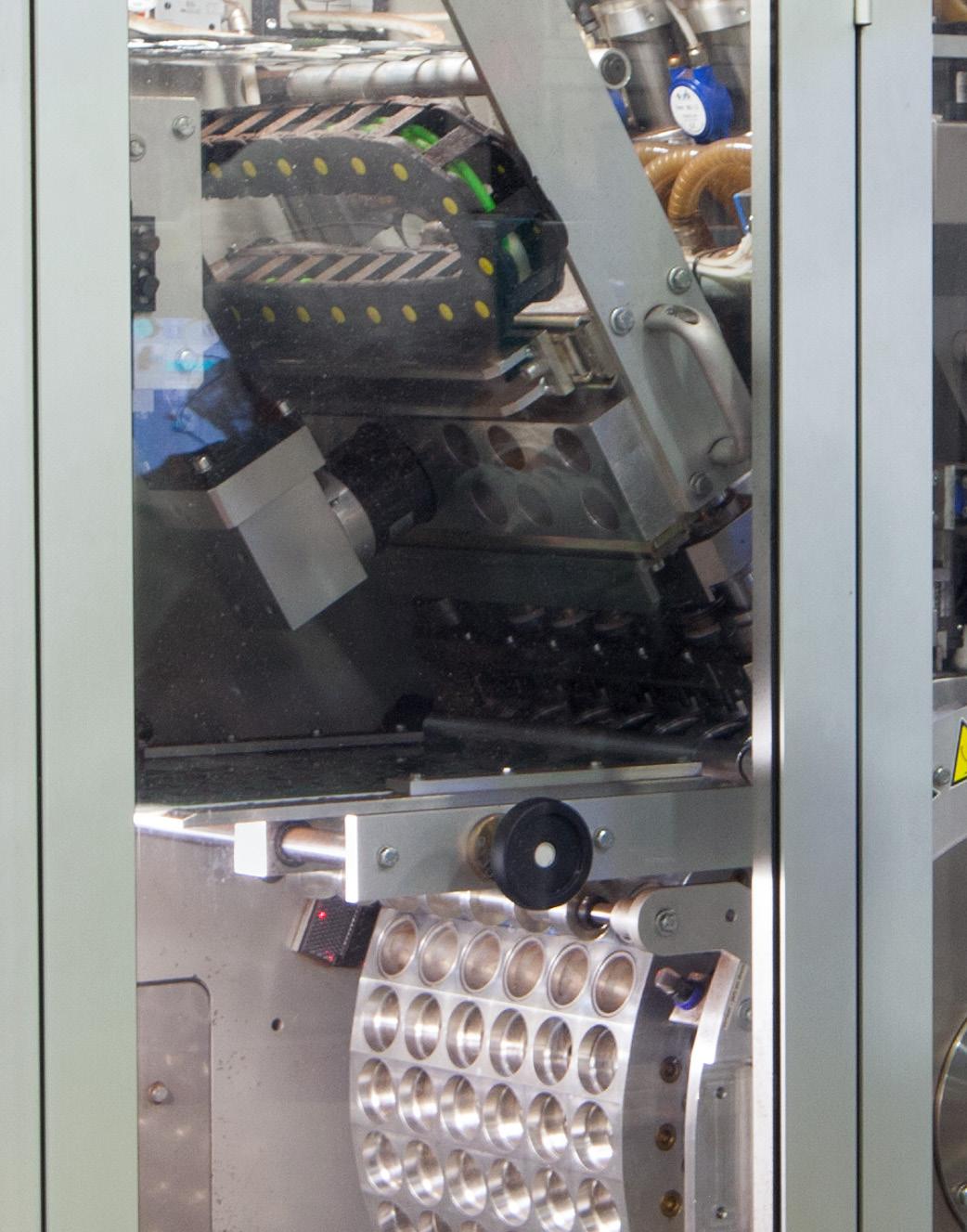
33
MASSIMO ZANETTI BEVERAGE
Targeting New International Markets
After the initial assistance in China, it was determined that MZB would be a good fit for VEDP’s two-year Virginia Leaders in Export Trade (VALET) program, which assists companies in the Commonwealth that are committed to international exporting as a growth strategy. The VALET program offers export planning services and assistance from a team of experienced global service providers who contribute essential expertise to assist companies in executing export plans.
MZB joined in July 2012, and preliminary research provided by the VALET team determined which target markets MZB should pursue. The results showed that coffee consumption in the Czech Republic, Poland, and South Korea was growing significantly from year to year, making these markets particularly attractive opportunities for the company. In addition, MZB’s major competitors, which include Starbucks, Dunkin’ Donuts, and Maxwell House, had already or were planning to enter these markets in a big way, demonstrating that they too saw upside potential in the countries.
MZB knew that international travel was key to a successful expansion, and had the opportunity to participate in VEDP global trade missions to its target markets. According to the company, VEDP’s network of in-country consultants proved to be ‘invaluable in breaking down the barriers to entry, as well as skillfully putting together impactful trade missions there that have resulted in incremental sales for us.’ Since participating in the VALET program, MZB has established three new international distributor partners who are actively placing orders for their products.
MZB was accepted into the two-year Virginia Leaders in Export Trade (VALET) program, which assists exporters in the Commonwealth that have firmly established domestic operations and are committed to international exporting as an expansion strategy.
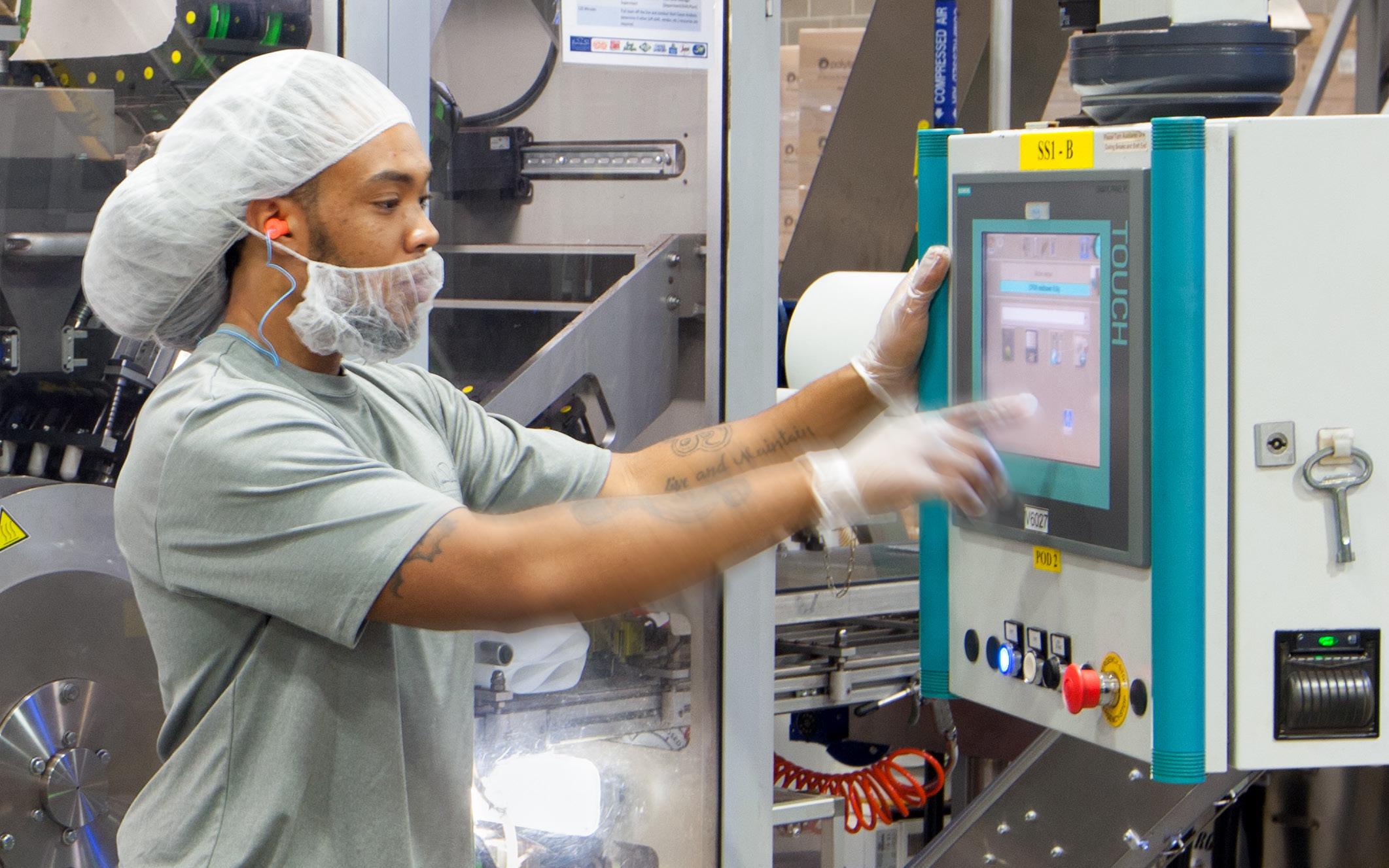 Massimo Zanetti Beverage USA, Suffolk
Massimo Zanetti Beverage USA, Suffolk
CASE STUDY 34
Amthor International received support from the Enterprise Zone Real Property Investment Grant Program, Virginia Jobs Investment Program (VJIP), and the Enterprise Zone Job Creation Grant Program. The company has generated 520 jobs for Virginians.
 Amthor International, Pittsylvania County
Amthor International, Pittsylvania County
Financial Assistance
Virginia Small Business Financing Authority
The Virginia Small Business Financing Authority (VSBFA) provides small businesses and communities with debt financing resources for business formation and expansion. VSBFA’s definition of “small” business is $10 million or less in annual revenues over each of the last three years; or a gross net worth less than $2 million; or 250 employees or fewer in Virginia: or qualification as a 501(c)(3) nonprofit entity.
Industrial Development Bonds (IDBs)
The VSBFA issues tax-exempt and taxable bonds to provide qualifying businesses and 501(c)(3) corporations with access to long-term, fixed asset financing at favorable interest rates and terms. IDBs can fund land acquisition, building construction, and capital asset (equipment) purchases. Eligible borrowers include new or expanding manufacturing companies, “exempt” facilities such as solid waste disposal facilities, and 501(c)(3)s.
Economic Development Loan Fund (EDLF)
The Virginia EDLF offers permanent working capital, owner occupied commercial real estate, and equipment loans to fill the “gap” unmet by equity, conventional financing, and other sources (COF, Historic Tax Credits, etc.).
Loan Guarantee Program (LGP)
The Loan Guarantee Program (LPG) helps Virginia’s businesses obtain funds to start or expand operations in Virginia. The program reduces a bank’s commercial loan risk in order to increase the availability of commercial loans to Virginia’s businesses. The maximum guaranty is the lesser of 75% of the credit amount or $750,000. The guaranty term cannot exceed seven years for term loans. Guaranties for lines of credit are available on an annual basis with a maximum of four subsequent renewals. Eligible borrowers must be a VSBFA-defined small business and meet VSBFA credit standards. Loan purposes include lines of credit for accounts receivable and inventory, term loans for permanent working capital, and fixed asset purchases, and restructured debt benefiting the borrower with additional fundings, a lower interest, and/or a longer repayment period.
SWaM Loan Fund (SLF)
The SLF funds a maximum of $10,000 in loans to existing Virginia small businesses.
Virginia Capital Access Program (VCAP)
The VCAP promotes business credit by mitigating risk through a form of loan portfolio insurance for participating lenders.
Cash Collateral Program (CCP)
The CCP is designed to help Virginia’s businesses obtain the funds to start, enhance, or expand their operations and thereby create or maintain jobs in the Commonwealth.
Small Business Investment Grant Fund (SBIGF)
Virginia taxpayers that invest in Virginia businesses may qualify for cash grants of up to 10% of their investment amount.
Community Development Block Grants
Community Development Block Grant (CDBG) funds are available to eligible cities, counties, and towns to support local community and economic development activities. Funds may be used for off-site development such as public facilities improvements including, but not limited to, construction of access roads, water and sewer line extensions, and installation of fiber network for telecommunications.
36
© July 2023



 Volkswagen Group of America, Fairfax County
Virginia International Gateway, Portsmouth
GEICO, Stafford County
Micron, Manassas
Volkswagen Group of America, Fairfax County
Virginia International Gateway, Portsmouth
GEICO, Stafford County
Micron, Manassas















 Goodyear Tire & Rubber Company, the world’s largest aircraft tire and medium radial truck tire manufacturing plant, received support from the Tobacco Region Opportunity Fund (TROF) when expanding in Southern Virginia’s City of Danville.
Goodyear Tire & Rubber Company, Danville
Goodyear Tire & Rubber Company, the world’s largest aircraft tire and medium radial truck tire manufacturing plant, received support from the Tobacco Region Opportunity Fund (TROF) when expanding in Southern Virginia’s City of Danville.
Goodyear Tire & Rubber Company, Danville
 KARL SCHLEDWITZ Chairman and CEO, Monogram Food Solutions
KARL SCHLEDWITZ Chairman and CEO, Monogram Food Solutions



 Amazon Fulfillment Center, Chesterfield County
Amazon Fulfillment Center, Chesterfield County

 Meta Data Center (Rendering), Henrico County
RACHEL PETERSON Vice President for Data Center Strategy, Meta
Meta Data Center (Rendering), Henrico County
RACHEL PETERSON Vice President for Data Center Strategy, Meta
 Morgan Olson, Pittsylvania County
MIKE OWNBEY President, Chief Operating Officer, Morgan Olson
Morgan Olson, Pittsylvania County
MIKE OWNBEY President, Chief Operating Officer, Morgan Olson
 Haleon (formerly GSK Consumer Healthcare), Richmond
DR. PETER JOHN RAMSEY, P h. D. Chief Scientific Officer, Haleon (formerly GSK Consumer Healthcare)
Haleon (formerly GSK Consumer Healthcare), Richmond
DR. PETER JOHN RAMSEY, P h. D. Chief Scientific Officer, Haleon (formerly GSK Consumer Healthcare)



 Massimo Zanetti Beverage USA, Suffolk
Massimo Zanetti Beverage USA, Suffolk
 Amthor International, Pittsylvania County
Amthor International, Pittsylvania County